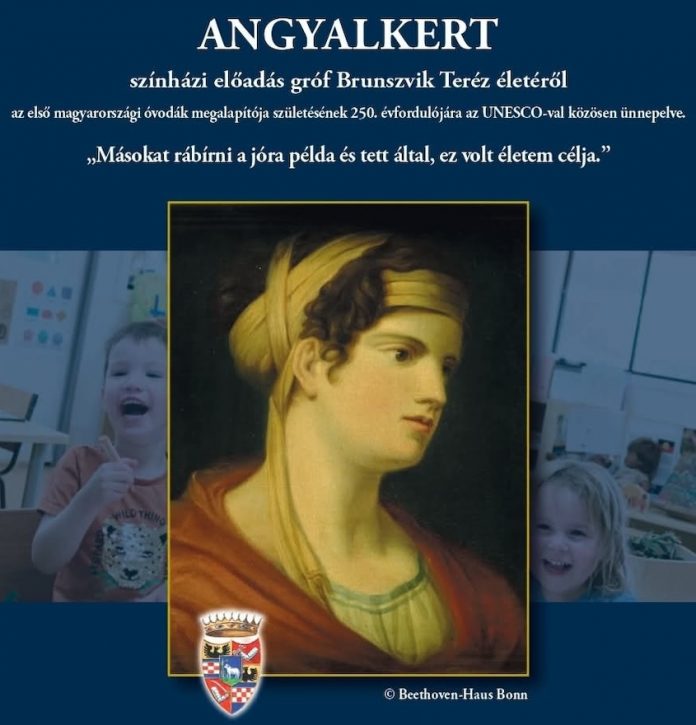“Angel Garden” – A Stage Triumph Honouring the Life and Legacy of Hungary’s Pioneer of Early Education
Edited by Anna Popper
Based on the decision of the 42nd session of the UNESCO General Conference in 2023, Hungary, in cooperation with UNESCO, celebrate the 250th anniversary of the birth of Countess Teréz Brunszvik (1775–1861) in 2025. She was one of the most remarkable figures of the Hungarian Reform Era, a visionary noblewoman whose pioneering work in early childhood education left an indelible mark on the nation.
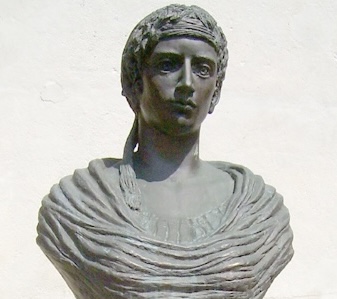
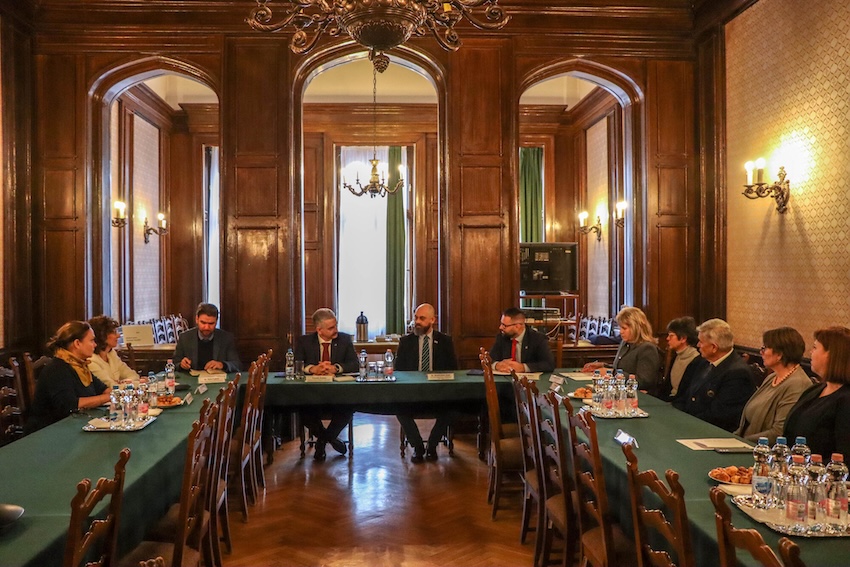
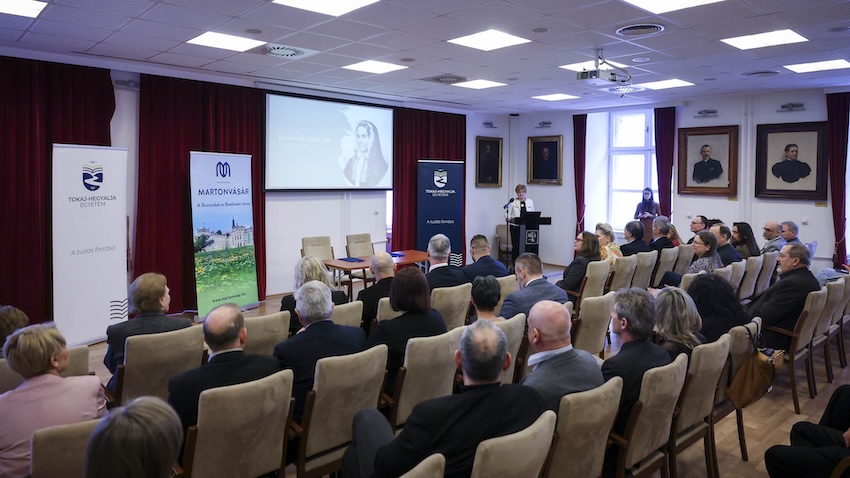
The anniversary series was coordinated by the Tokaj-Hegyalja University in Sárospatak, with support from the Hungarian National Commission for UNESCO, the Union of Hungarian Women, the Martonvásár Memorial Year Committee, Hungarian Batthyány Foundation and the Municipality of Martonvásár.
The official opening took place on 26 February 2025 in the Library of the Hungarian Academy of Sciences.
The events celebrate Teréz Brunszvik’s timeless values – patriotism, empathy, solidarity, compassion – and her enduring professional achievements, most notably the creation of the first kindergarten in Hungary, called Angel Garden (Angyalkert), as well as her broader contributions to social reform and women’s education.
Angel Garden – A Stunning Stage Tribute
The highlight of the events dedicated to her was the world premiere of the play Angel Garden (Angyalkert) on 27 July 2025, on Countess Teréz’s birth anniversary, at the House of Culture and Library in Sárospatak. The play was a huge success, receiving enthusiastic reviews from audiences and critics alike.
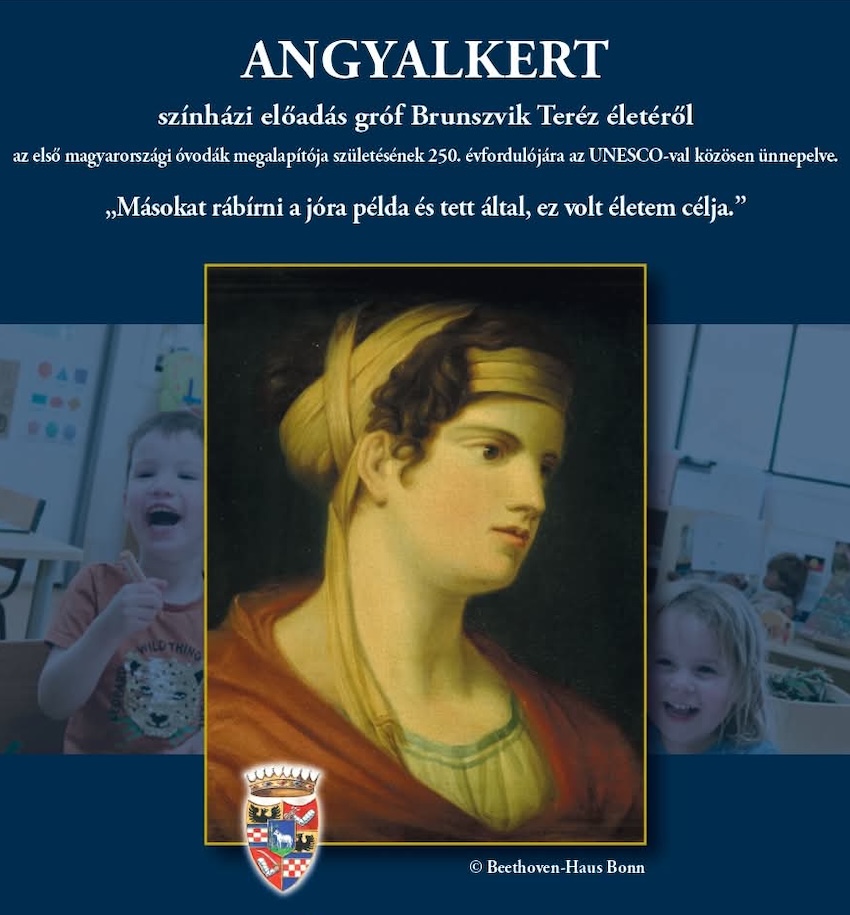

Organised by the Union of Hungarian Women and the Batthyány Foundation, under the patronage of Mrs. Zsuzsanna Nagy, spouse of the President of Hungary, the play traces the long and fascinating life of Teréz Brunszvik, emphasizing her courage in never marrying in conservative Hungarian society while pursuing ambitious social initiatives and reforms.
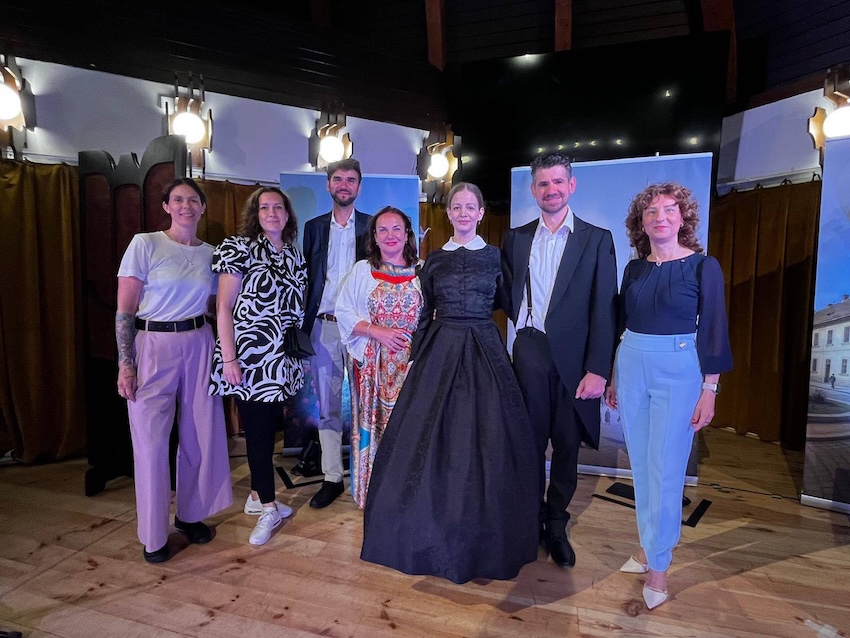
The idea of the play was conceived by Margó Batthyány-Schmidt, a member of one of Hungary’s greatest noble families – the Batthyánys, President of the Union of Hungarian Women and a long-time supporter of Teréz Brunszvik’s legacy.
The play was written and directed by Judit Cseh and produced by Margó Batthyány-Schmidt. Their goal was to authentically present the nation-building legacy of this extraordinary woman.
Starring Dóra Kakasy and Sándor Gulyás-Hermann in all roles, the theatre play explores themes of thirst for knowledge, love, dedication, responsibility, and the importance of childhood, sending a message that remains strikingly timely for contemporary society.
Budapest Premiere and Continued Success
The theatre performance was also presented in Budapest on 3 September 2025, at the MáraiKult Cultural Centre, in the presence and with the support of the Deputy Mayors of the Buda Castle District of Budapest, Ms. Csilla Fazekas and Mr. Artúr Fodor, the Mayor of Martonvásár, Mr. Bálint Horváth, Secretary General of the Hungarian UNESCO Committee, Mr. Gábos Soós and the founder of the Kindergarten Museum in Martonvásár, Mrs. Tiborné Harcsa.
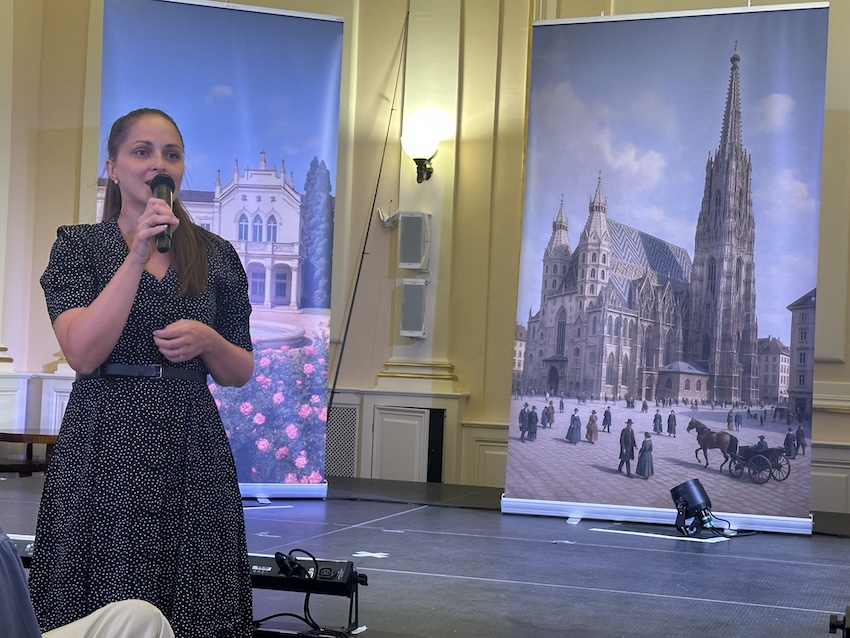
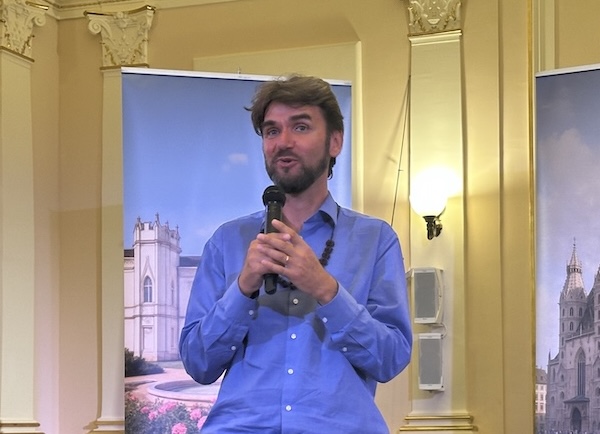
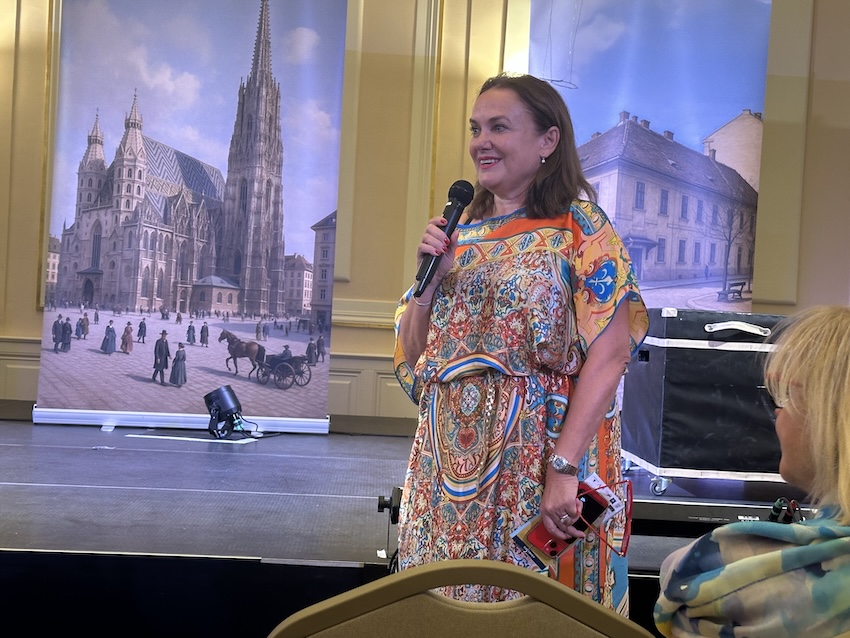
The guests from various walks of life, filling the beautiful event hall to capacity, were welcomed by Producer Margó Batthyány-Schmidt. Speaking about the play, she said: “Countess Teréz Brunszvik remains a living example of courage, vision, and dedication. The creation of Angel Garden was the result of broad social cooperation. Together with Judit Cseh, our goal was to authentically present the nation-building legacy of this extraordinary woman, whose spirit is closely connected to the Hungarian Women’s Union.”
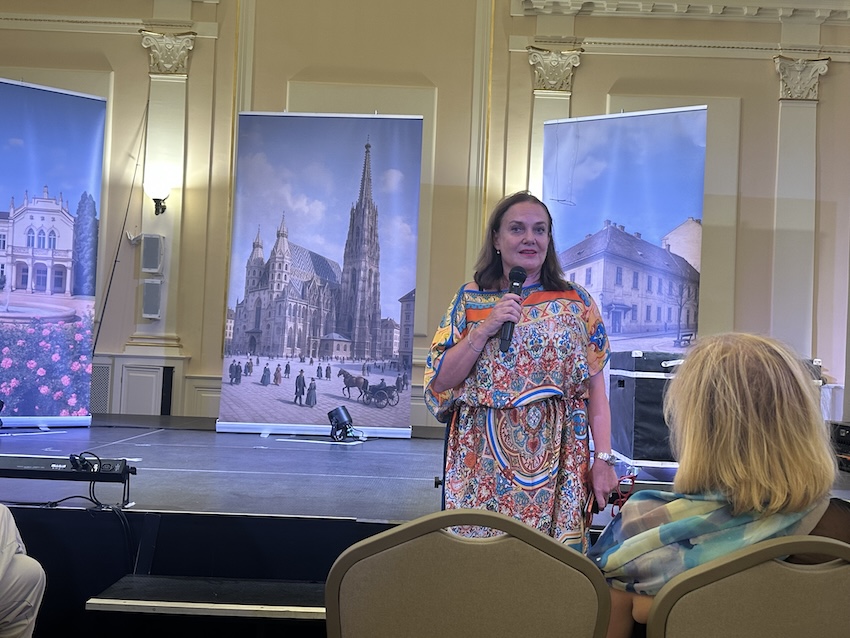
The play’s enthusiastic reception by the audience in Budapest showed that her ideals – working with children, fostering education, and embracing social responsibility – remain deeply relevant today. The attendees praised both the storytelling and the timely message of the play, reflecting on the role of children, the nature of education, and society’s responsibility to nurture future generations.
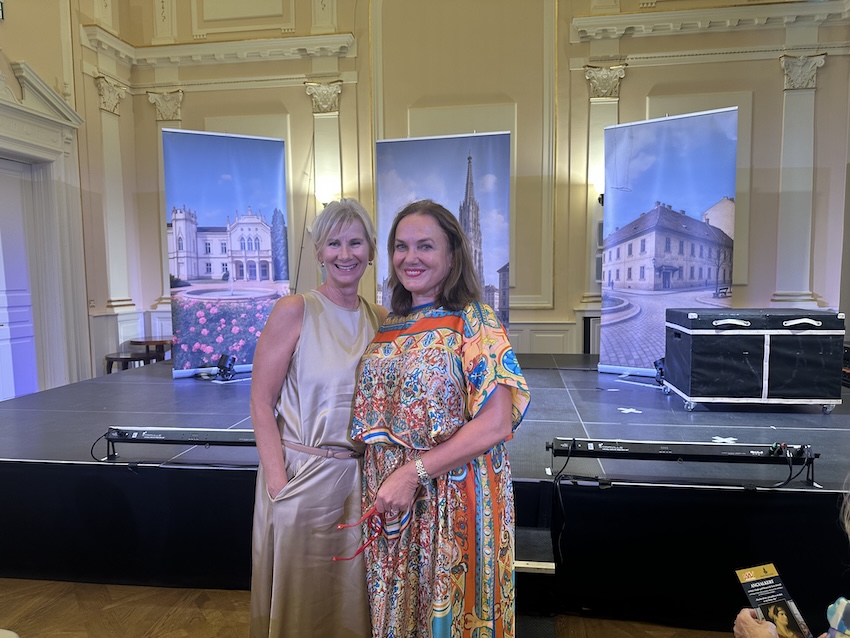
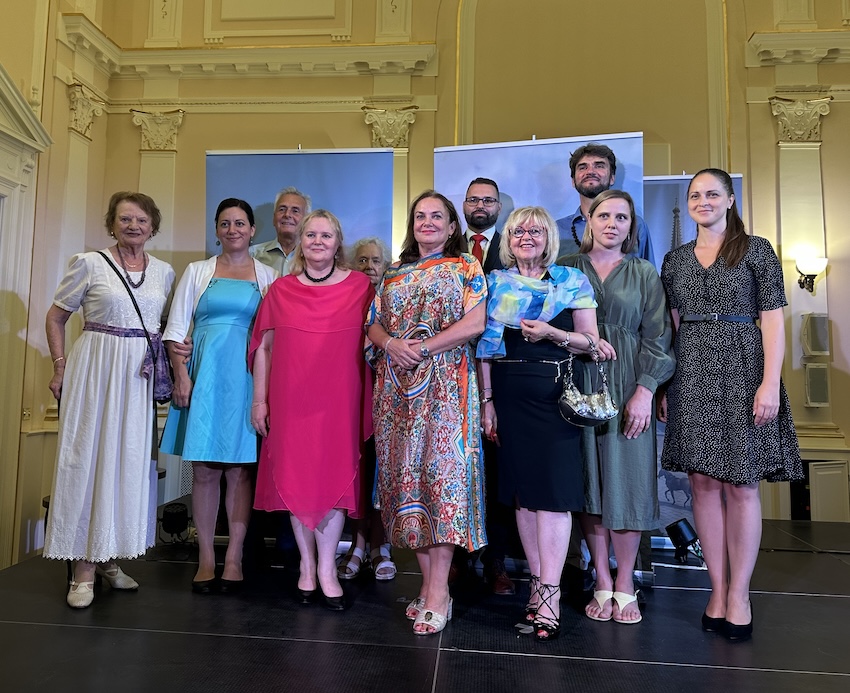
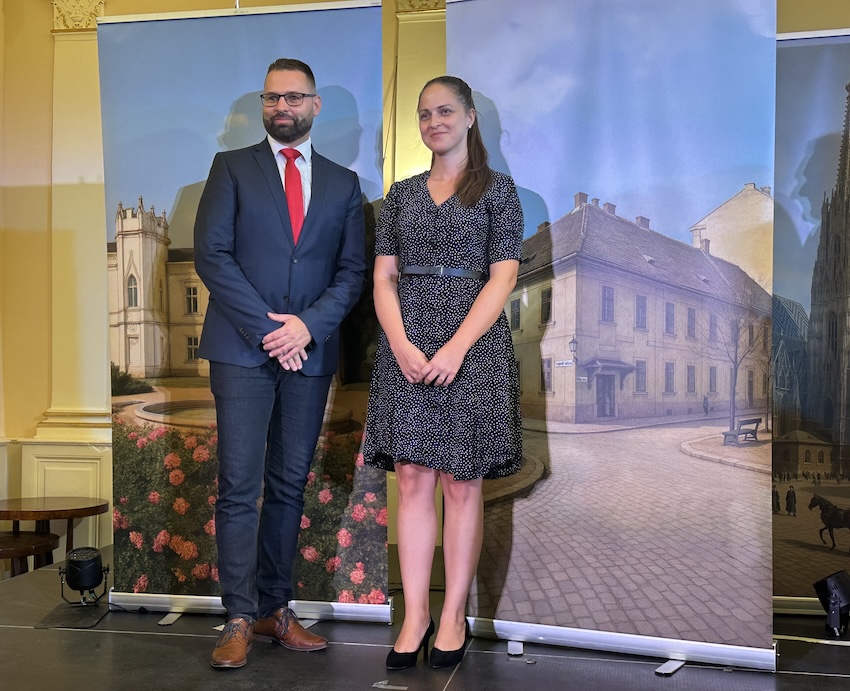
A collection of inspiring photographs from the performance by the extraordinary artists Dóra Kakasy and Sándor Gulyás-Hermann provides a vivid visual impression of the event.
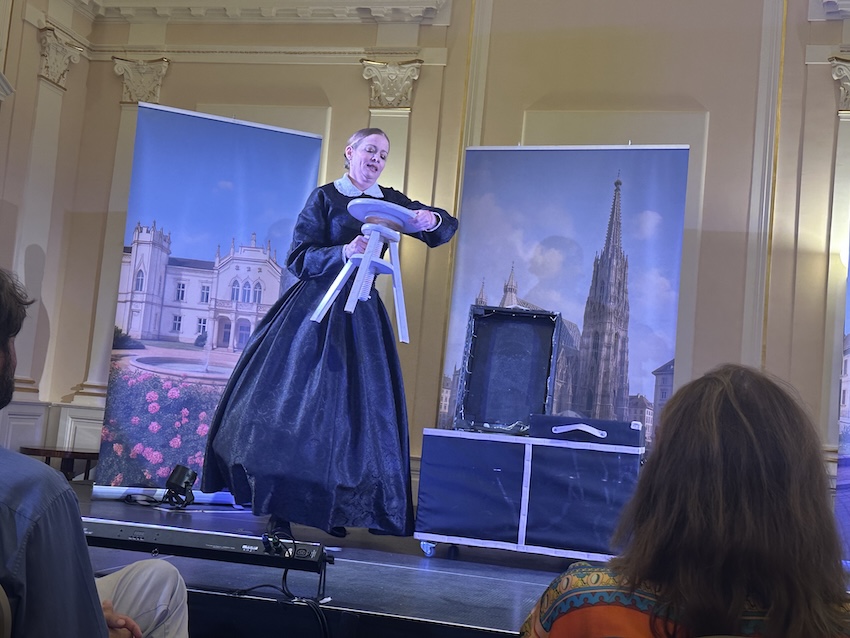
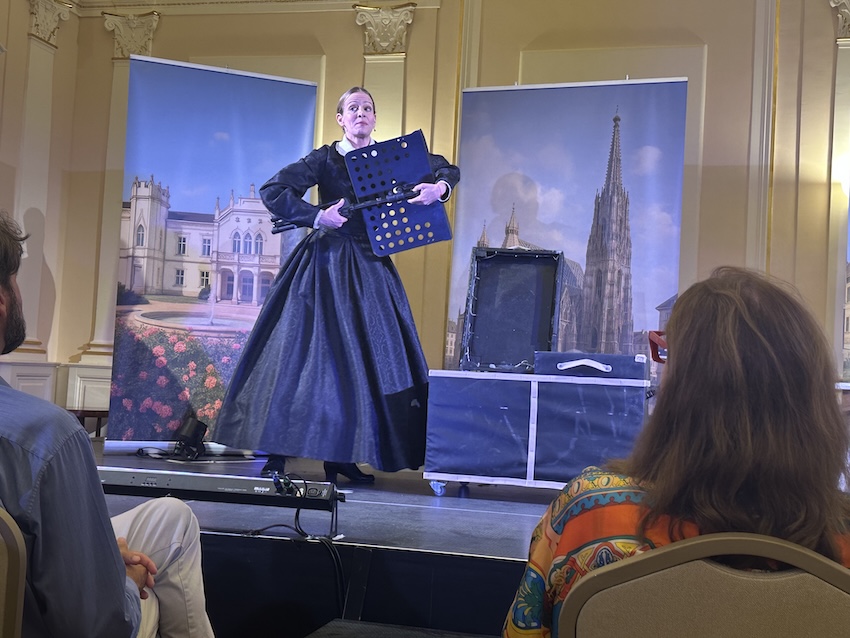
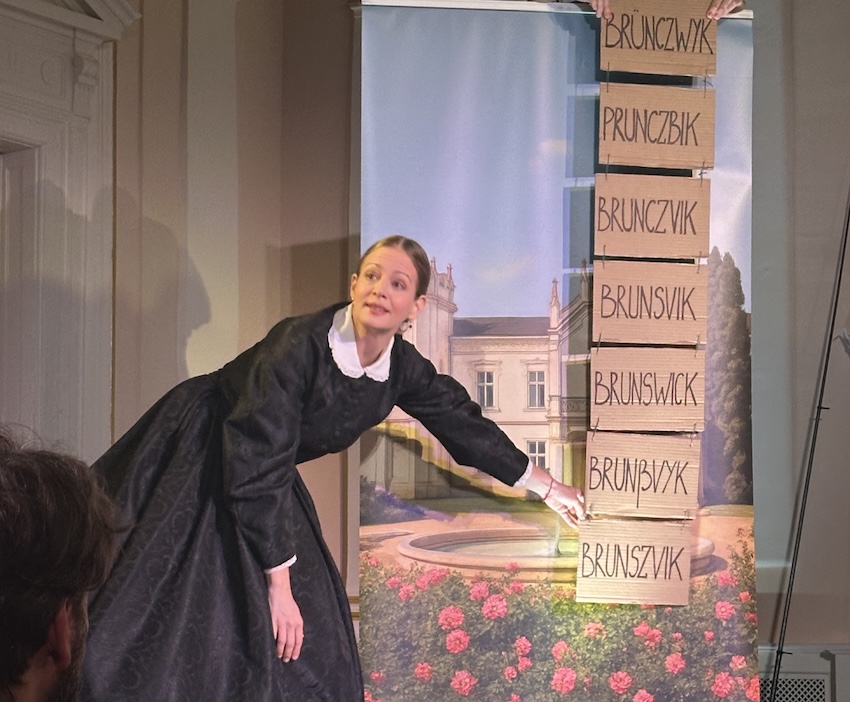
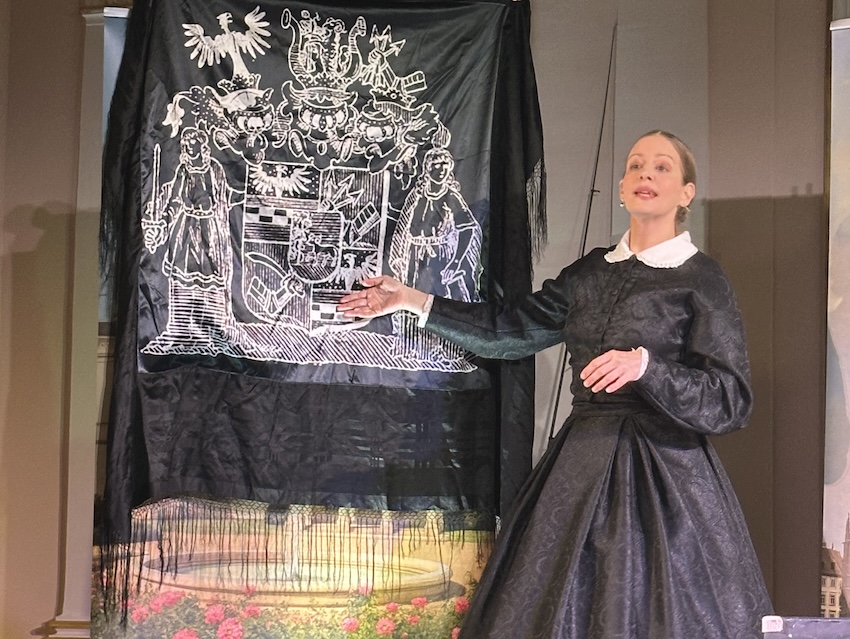
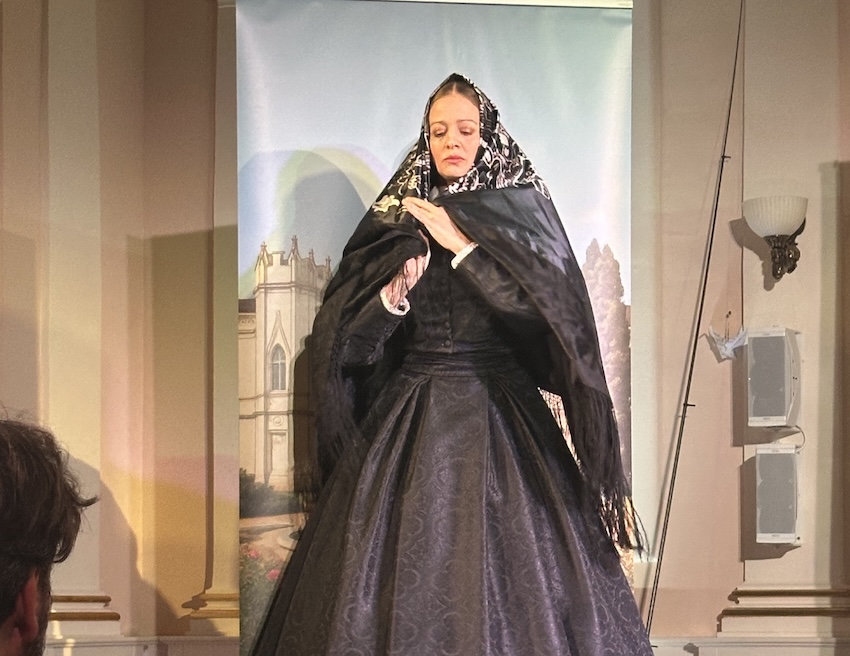
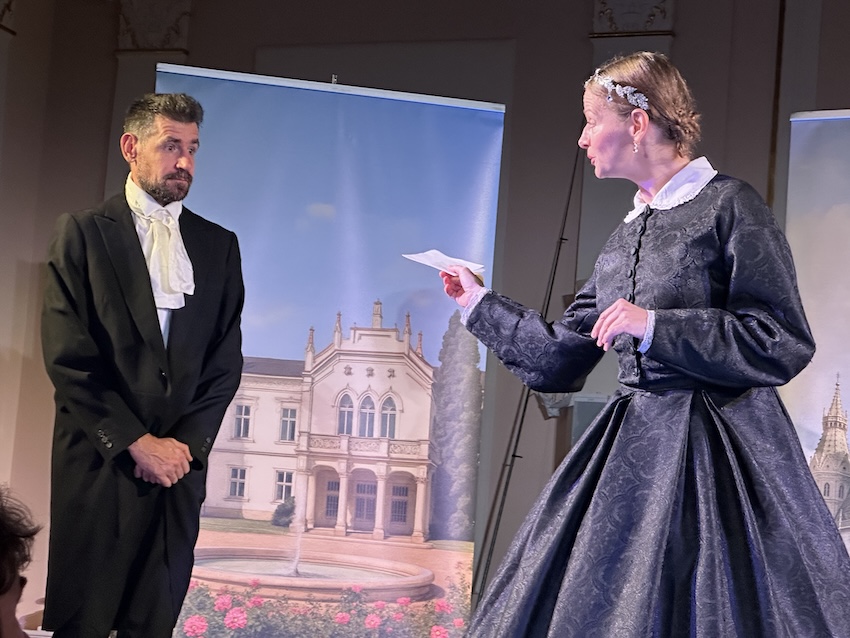
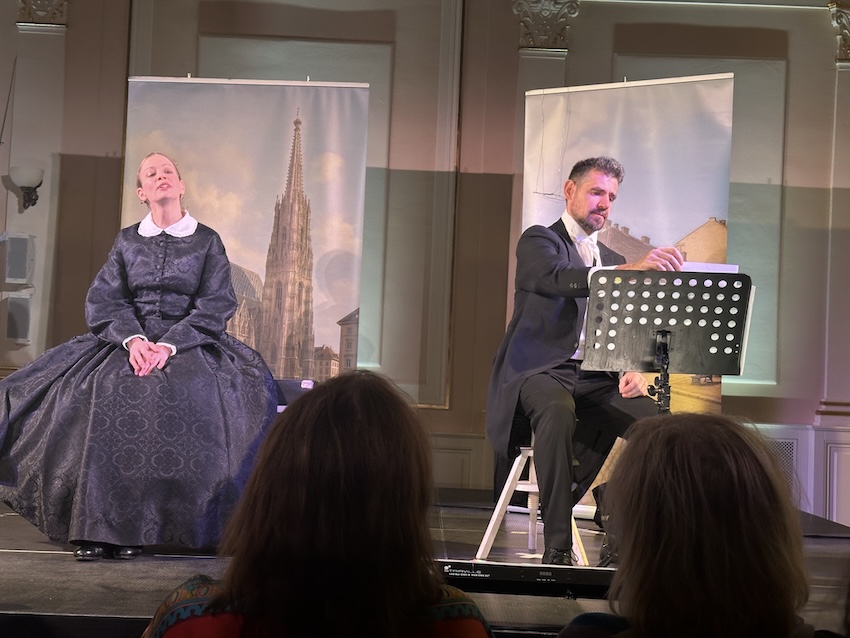
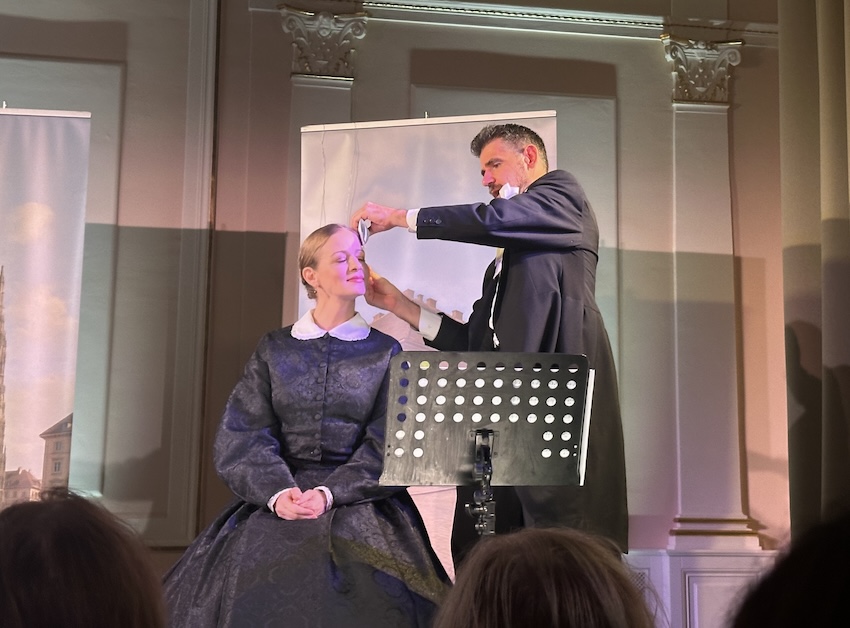
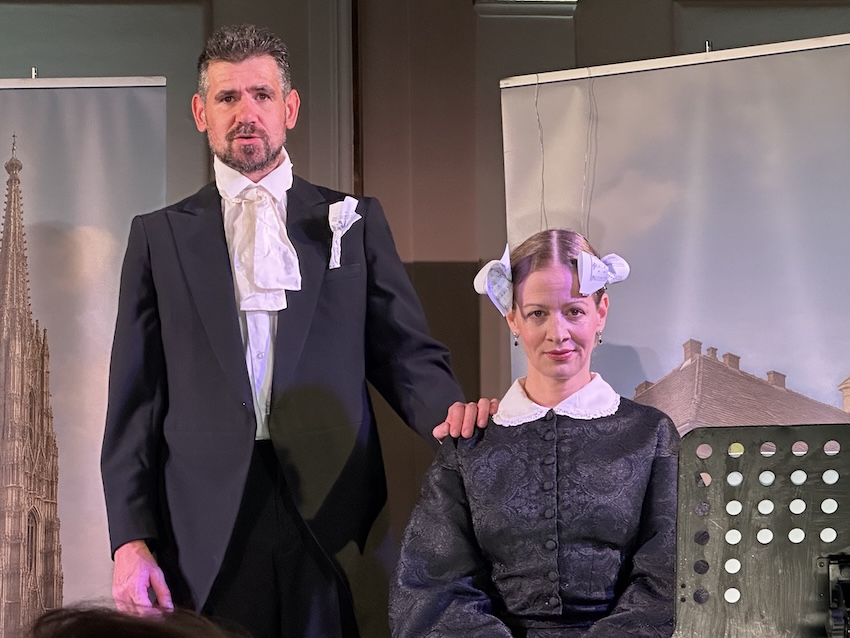

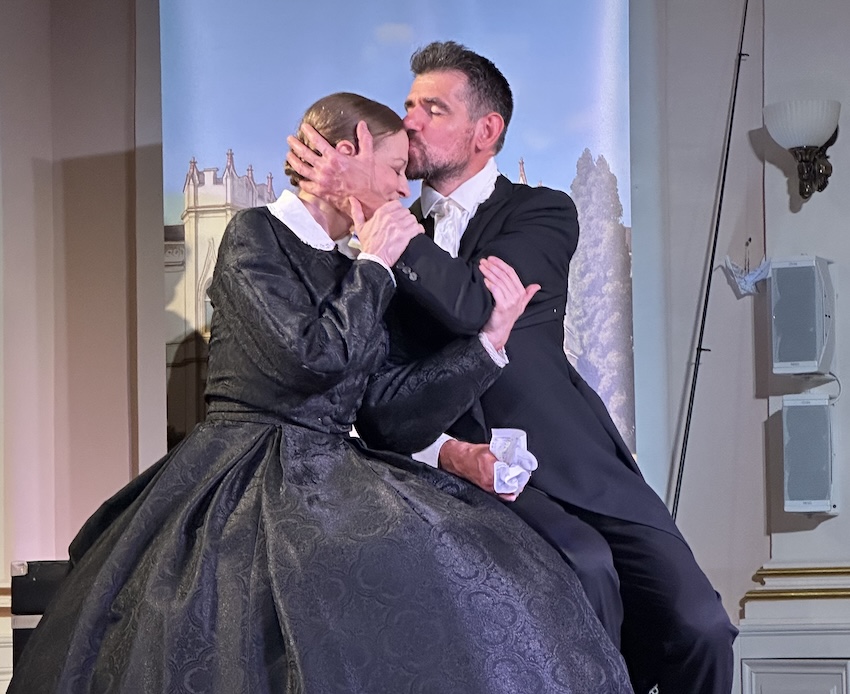

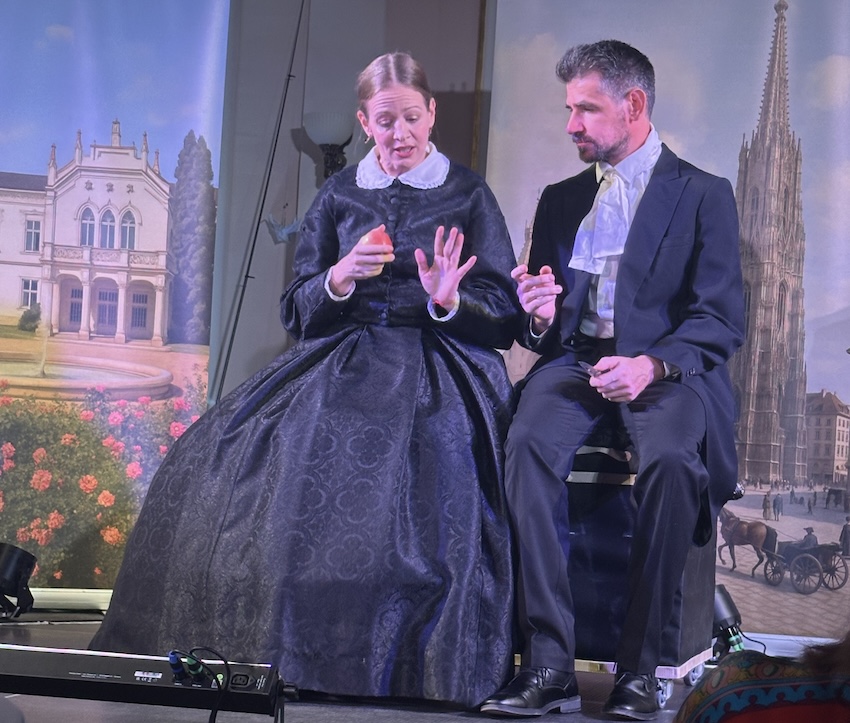
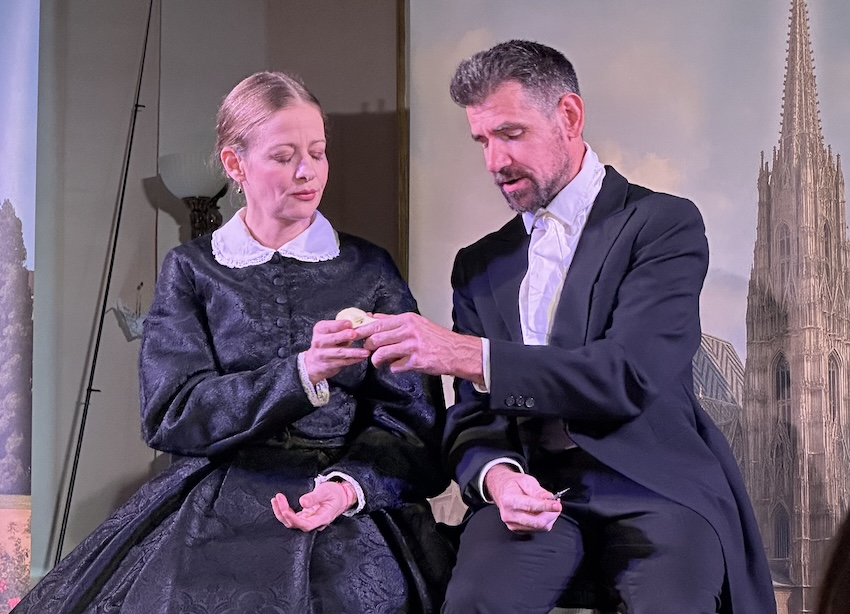
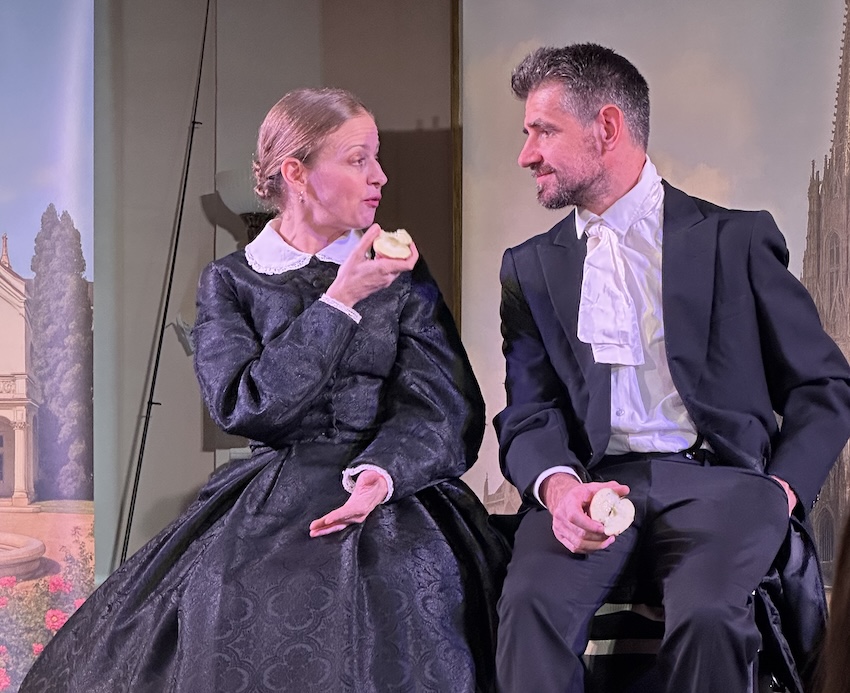
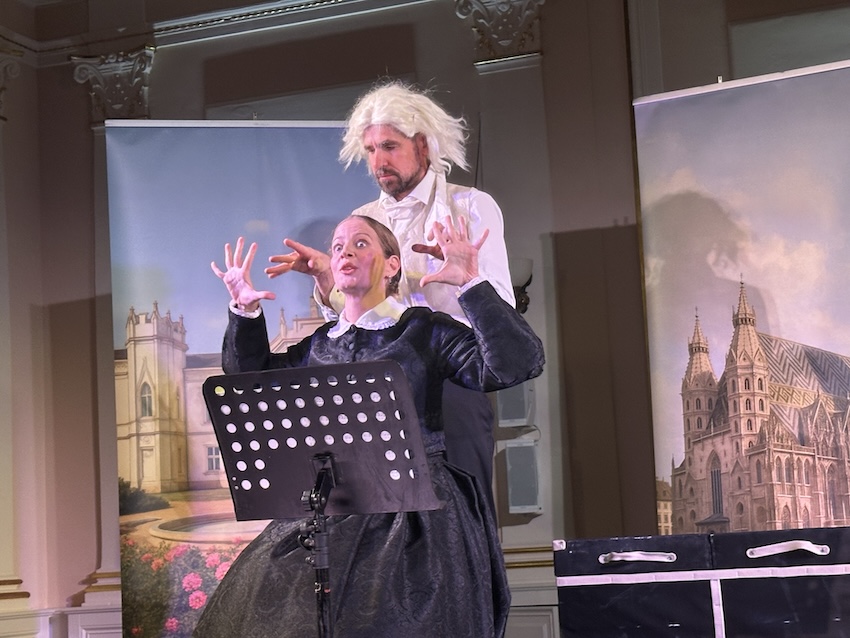
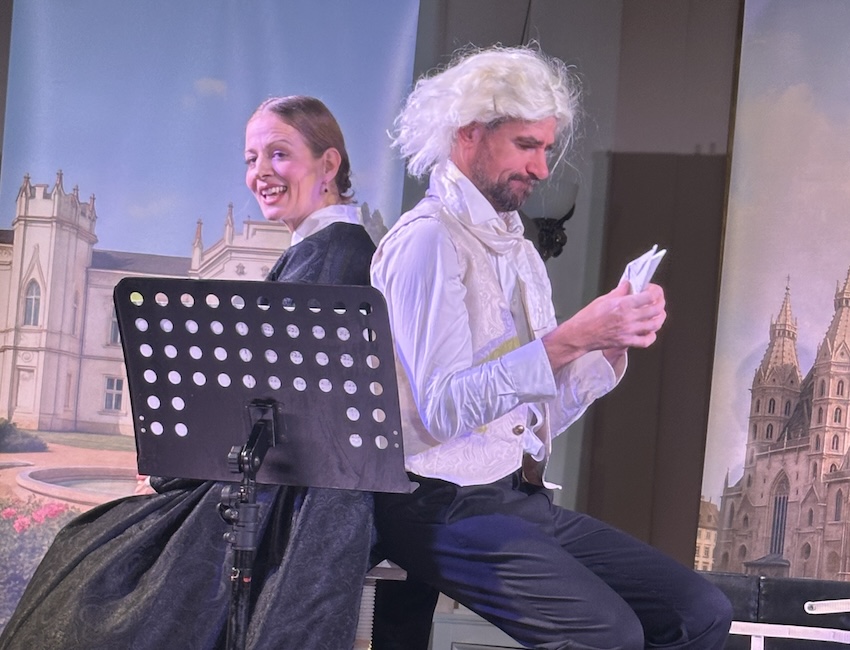
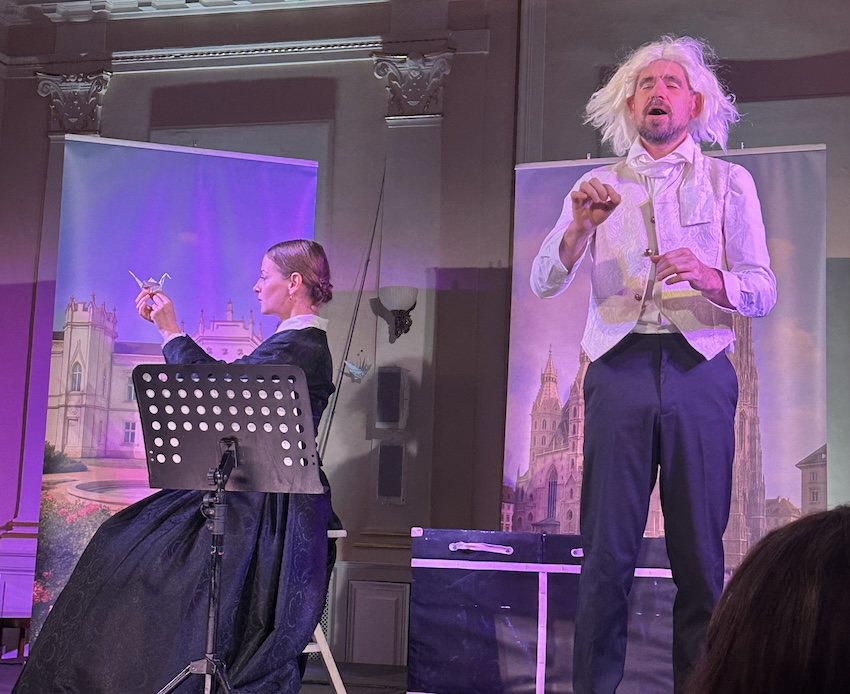
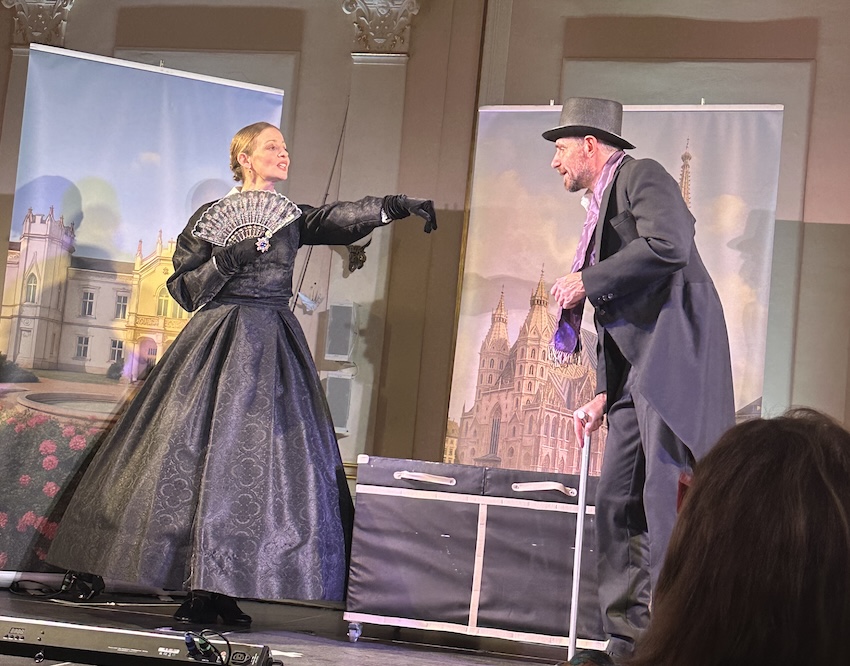
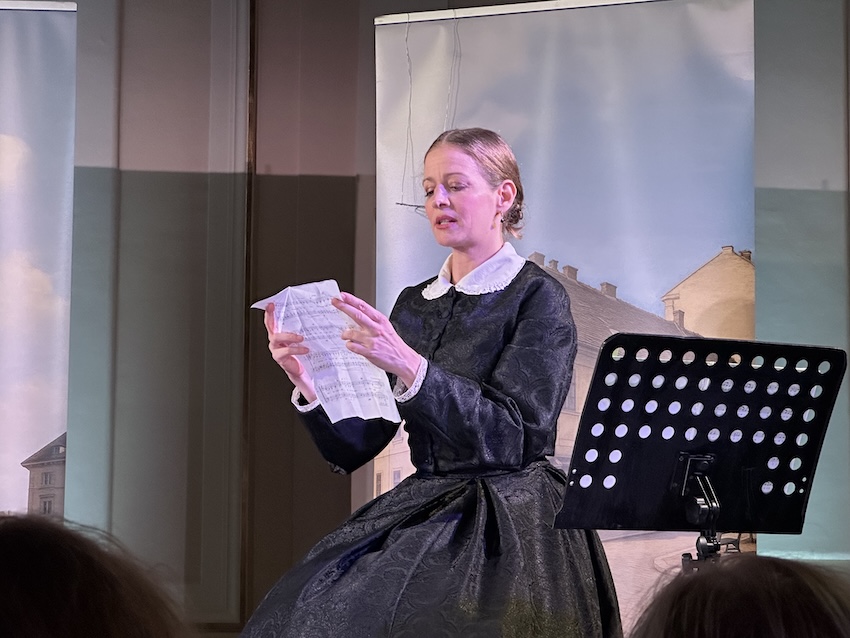
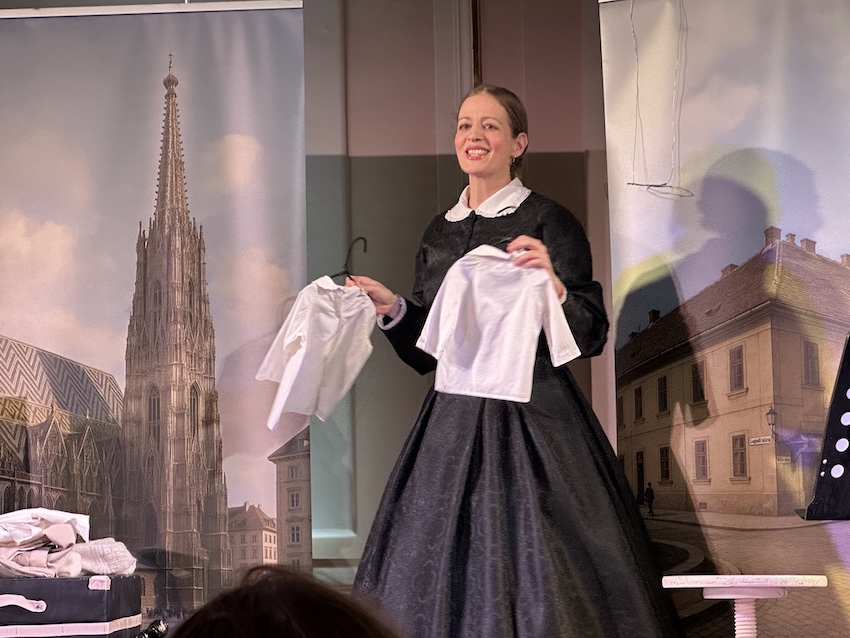
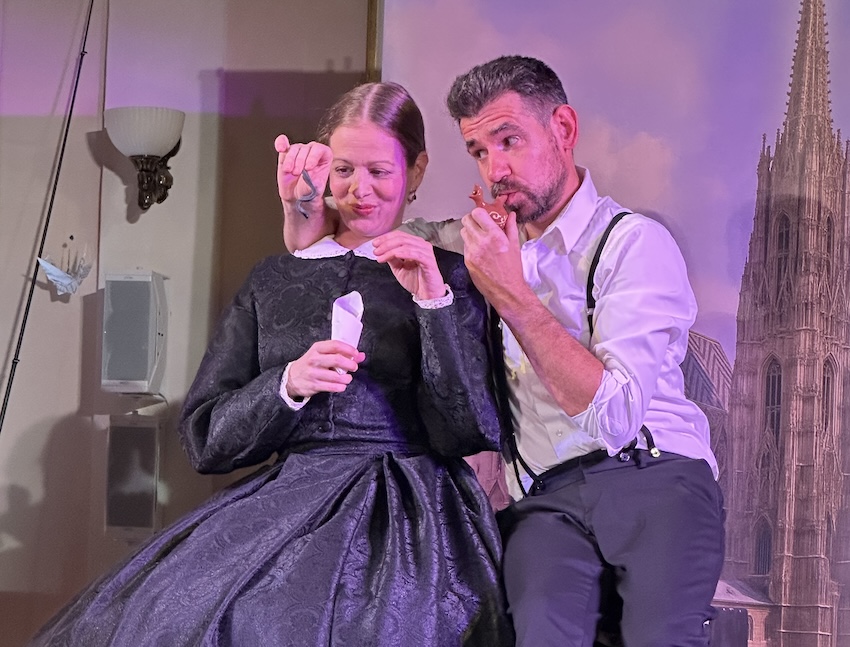
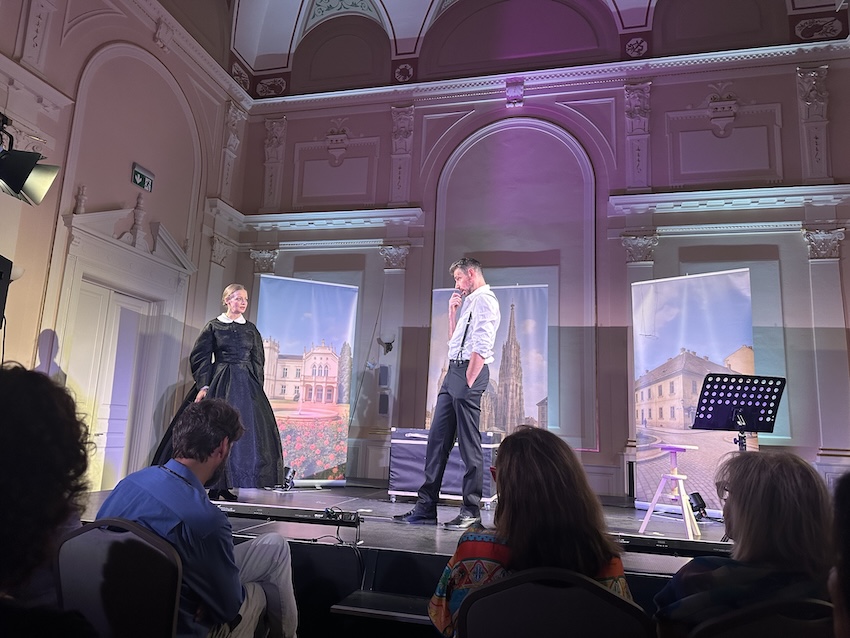
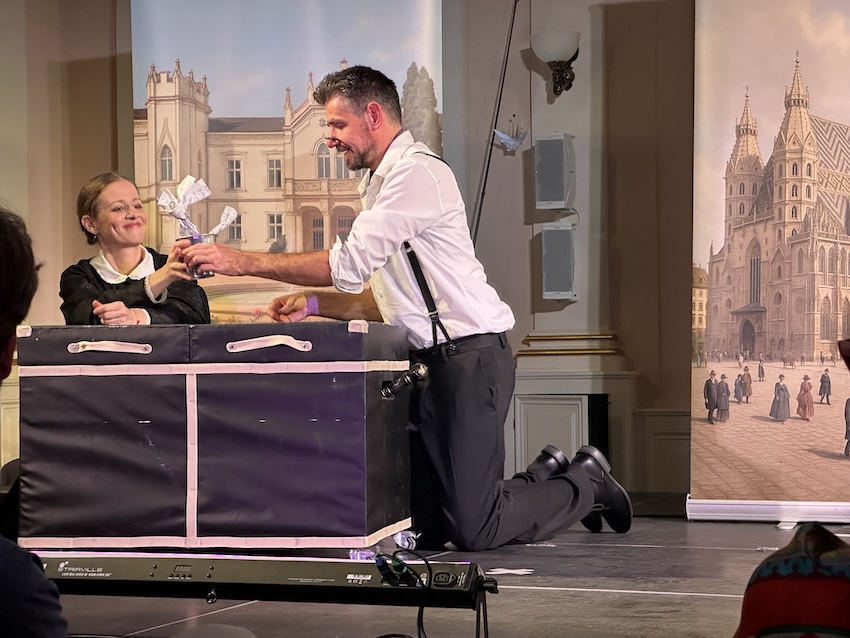
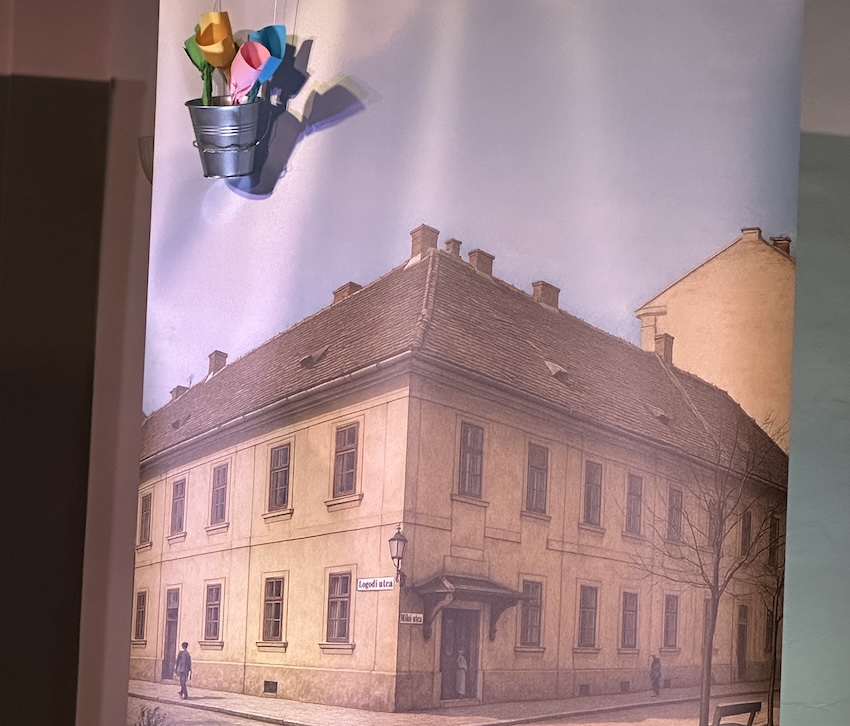
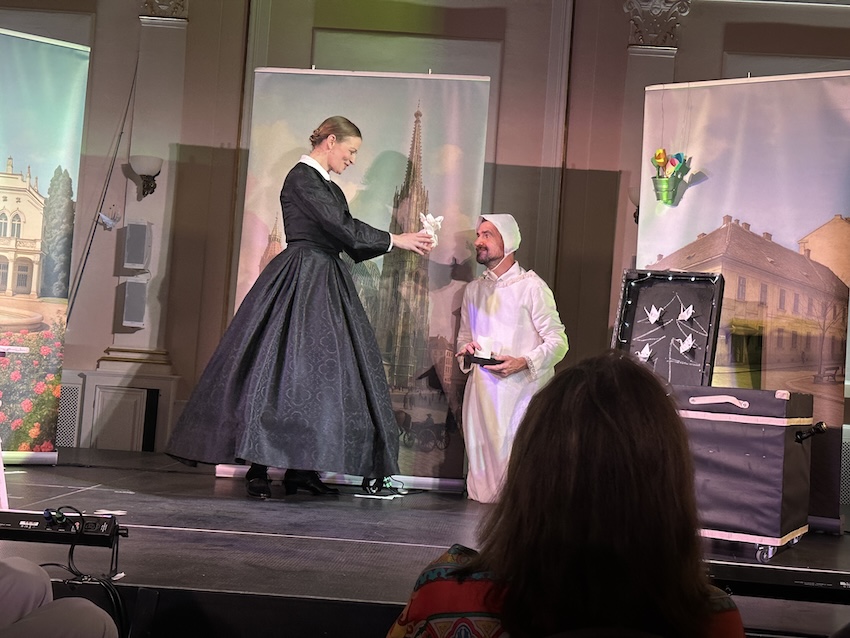
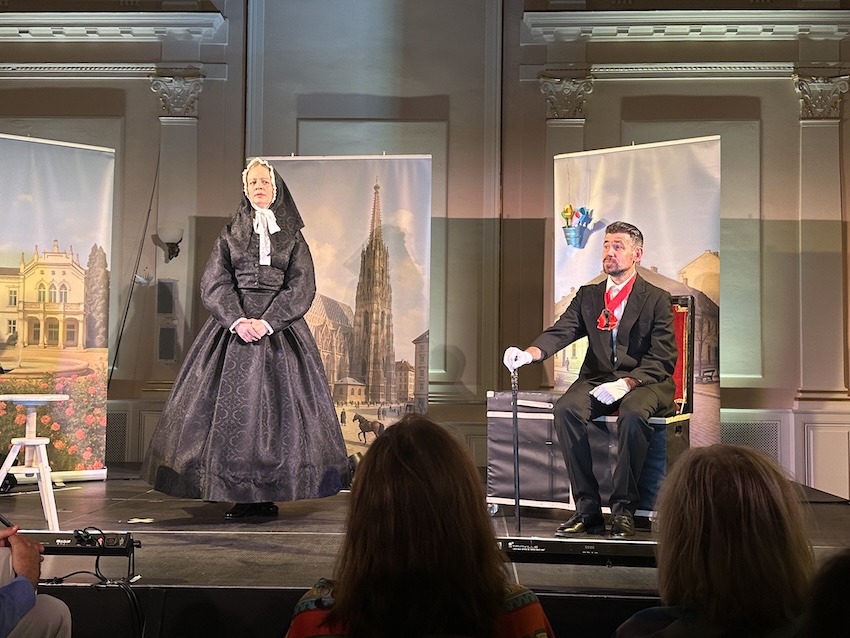
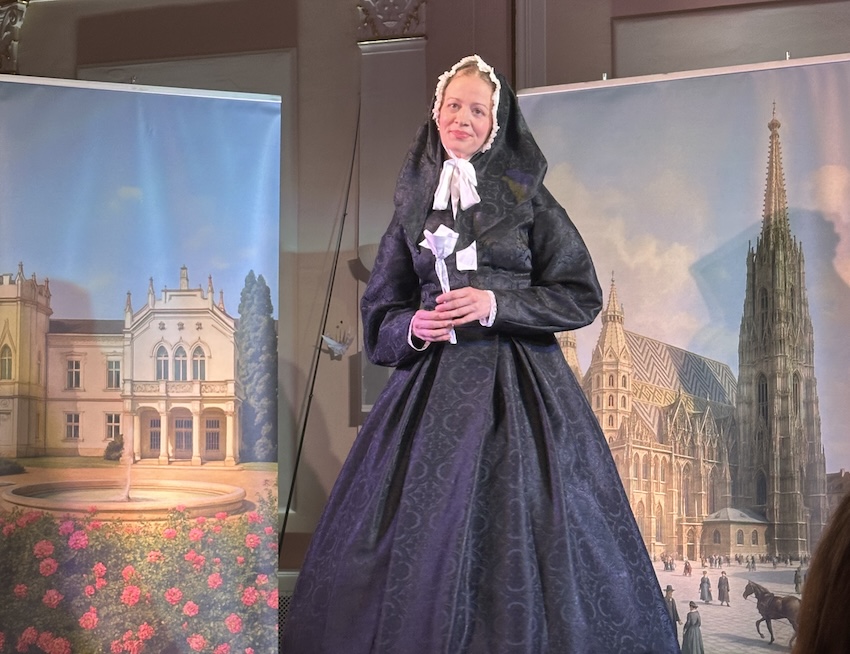
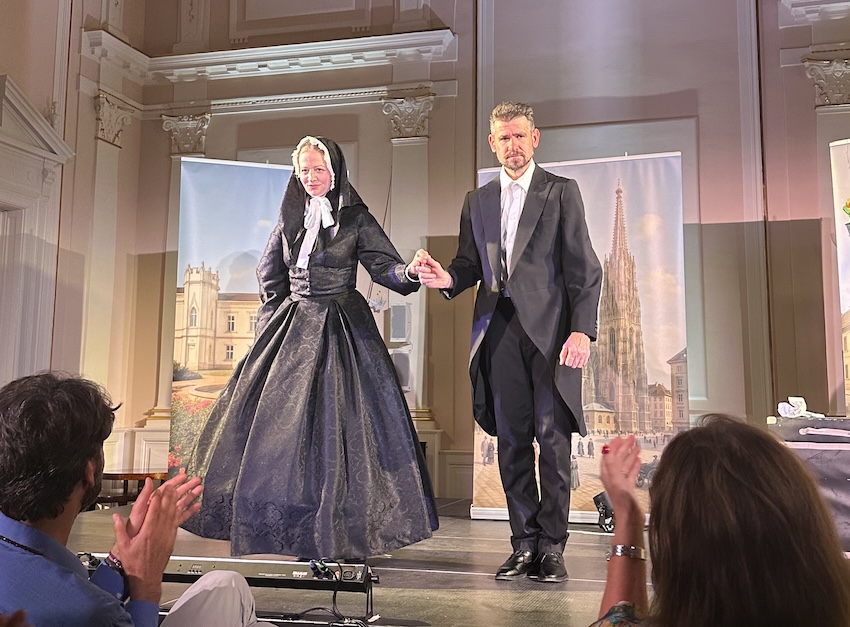
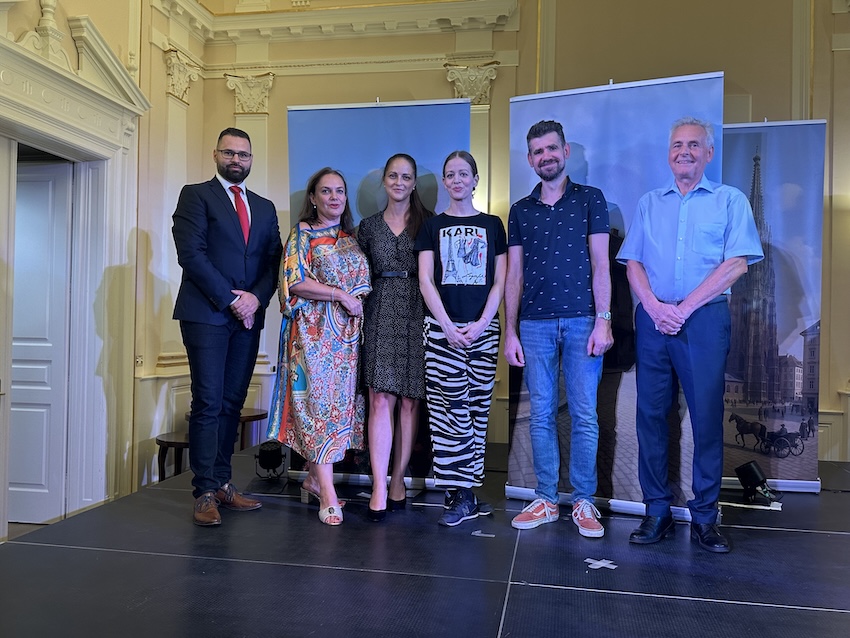
The performance was completed by a comprehensive travelling exhibition, featuring key moments from Teréz Brunszvik’s life and work, which the guests had the opportunity to visit.
Manuscripts and historical documents were on display, including her 1831 report on kindergartens and a receipt written and signed by Ludwig van Beethoven in 1795, both borrowed from the Hungarian National Archives.
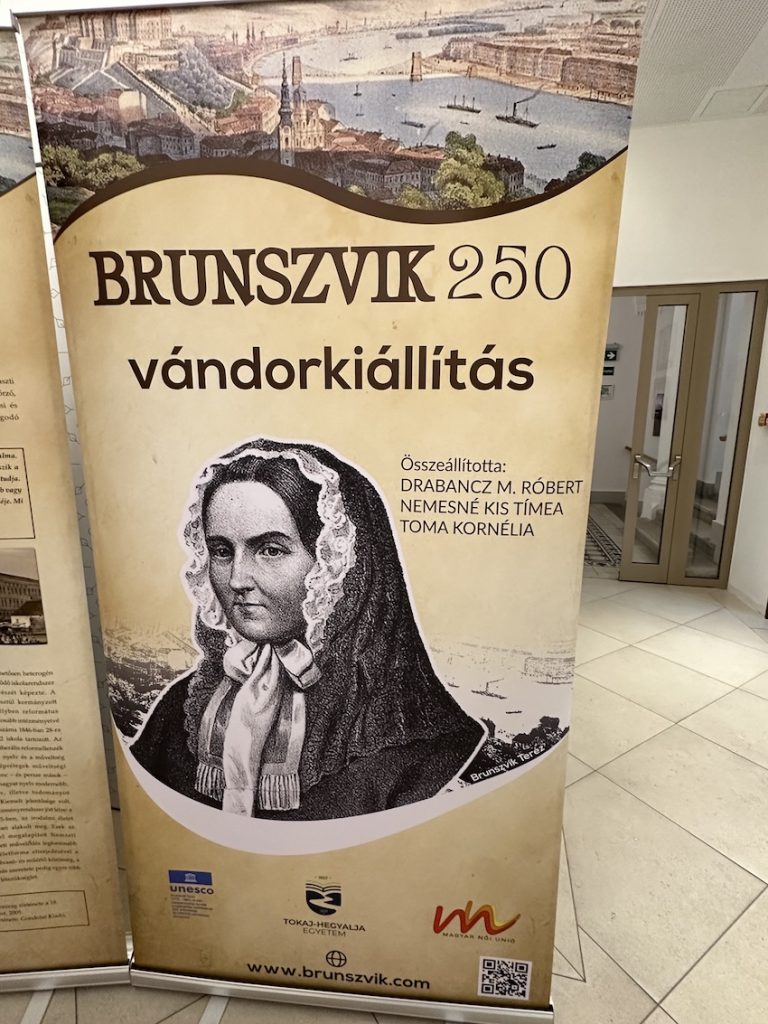



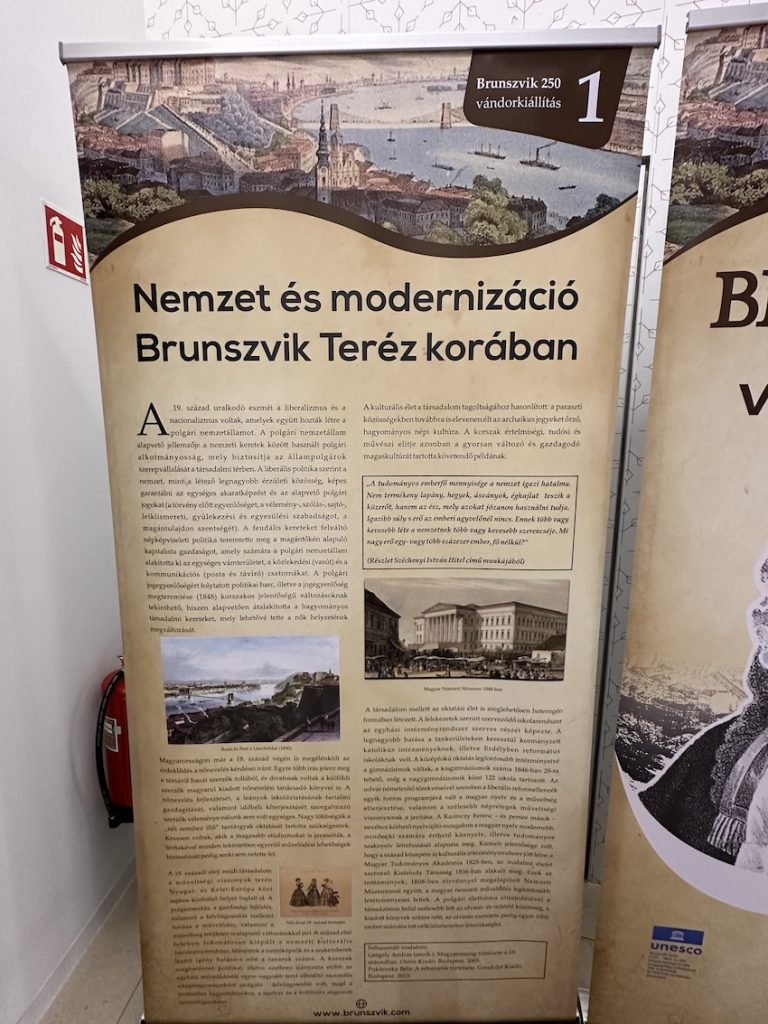
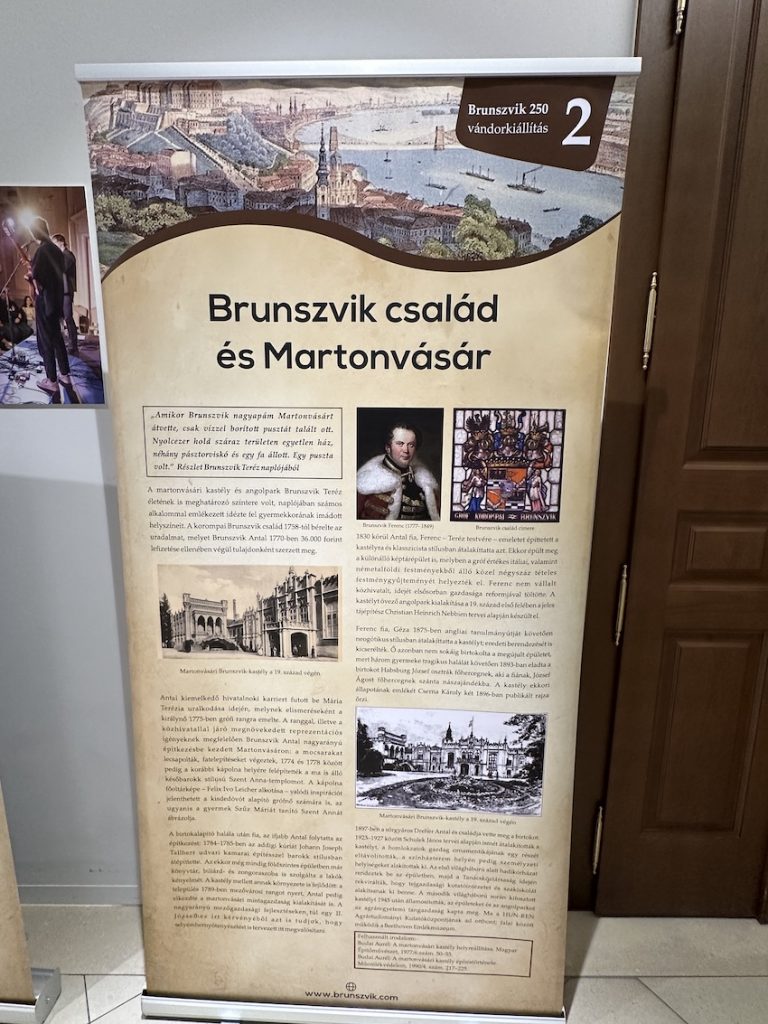
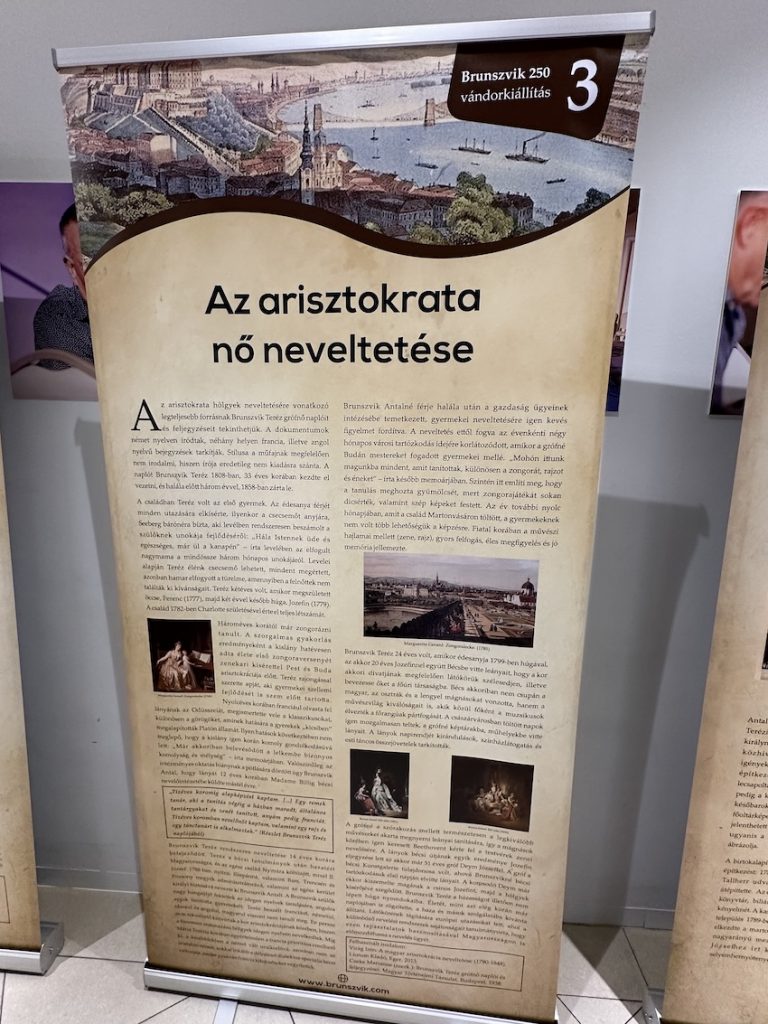
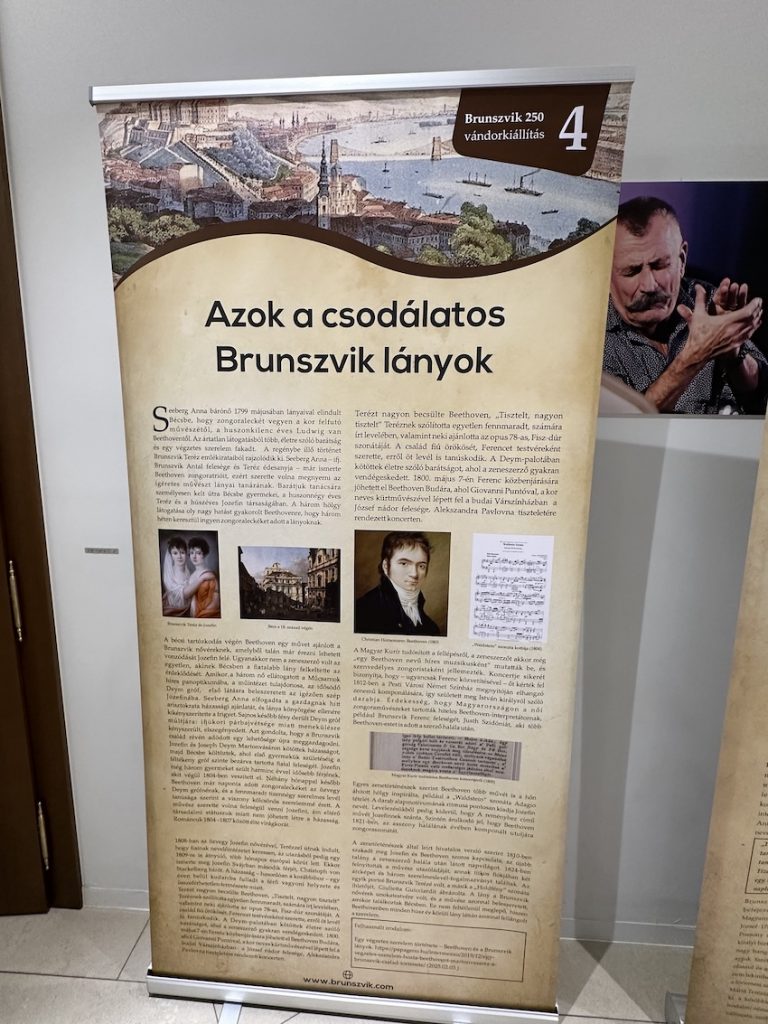
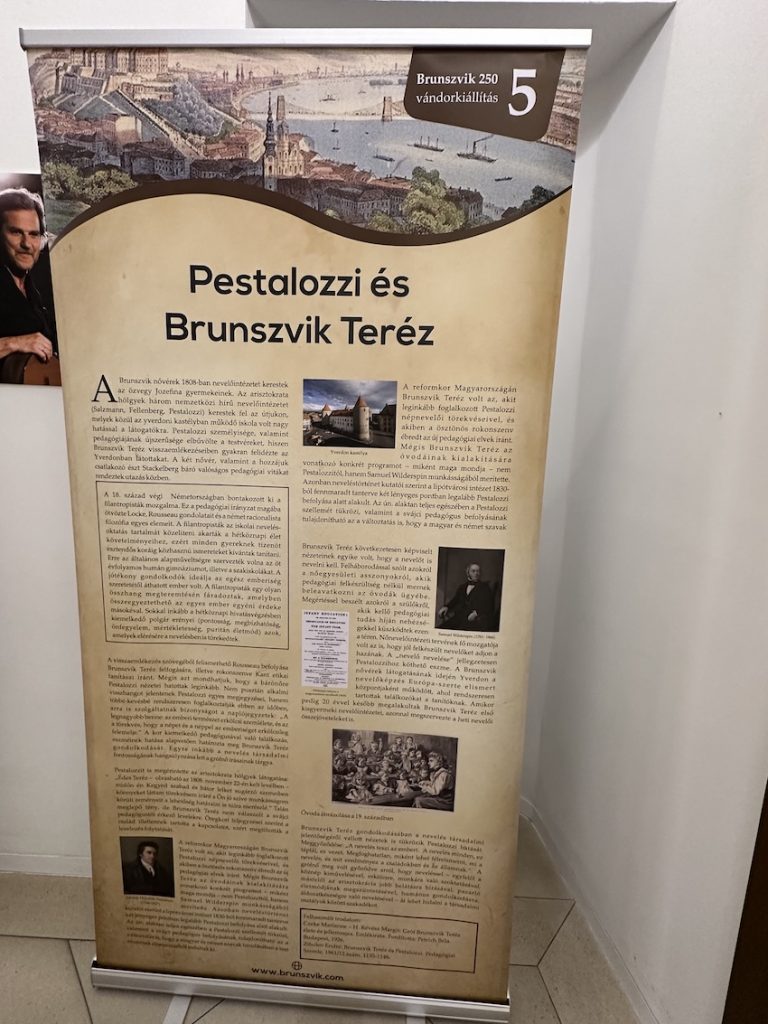
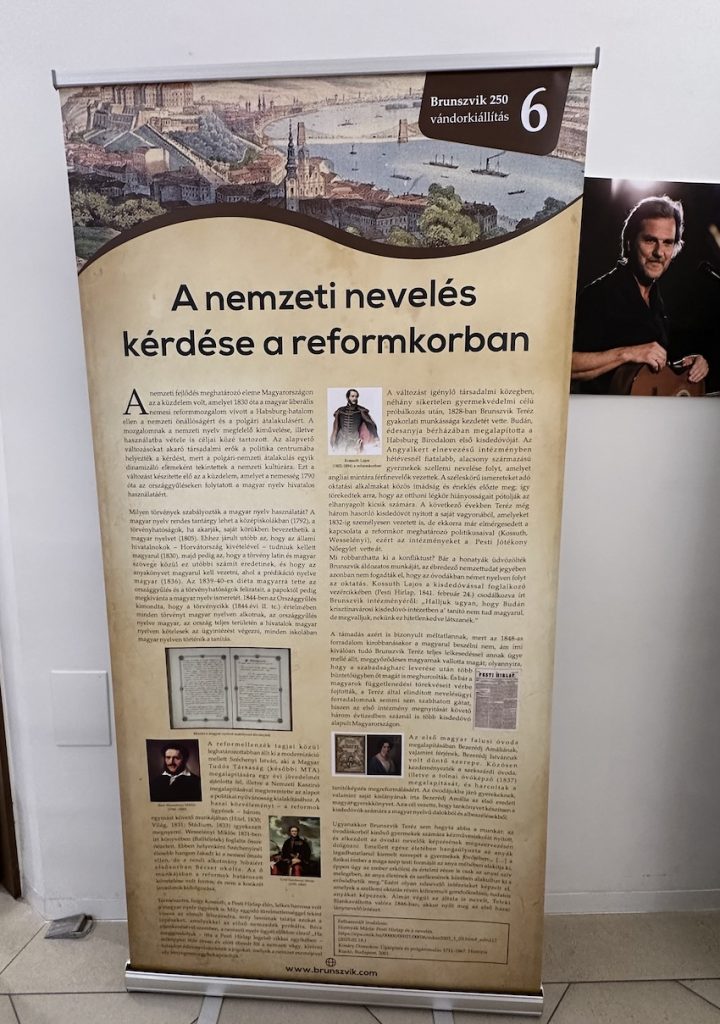
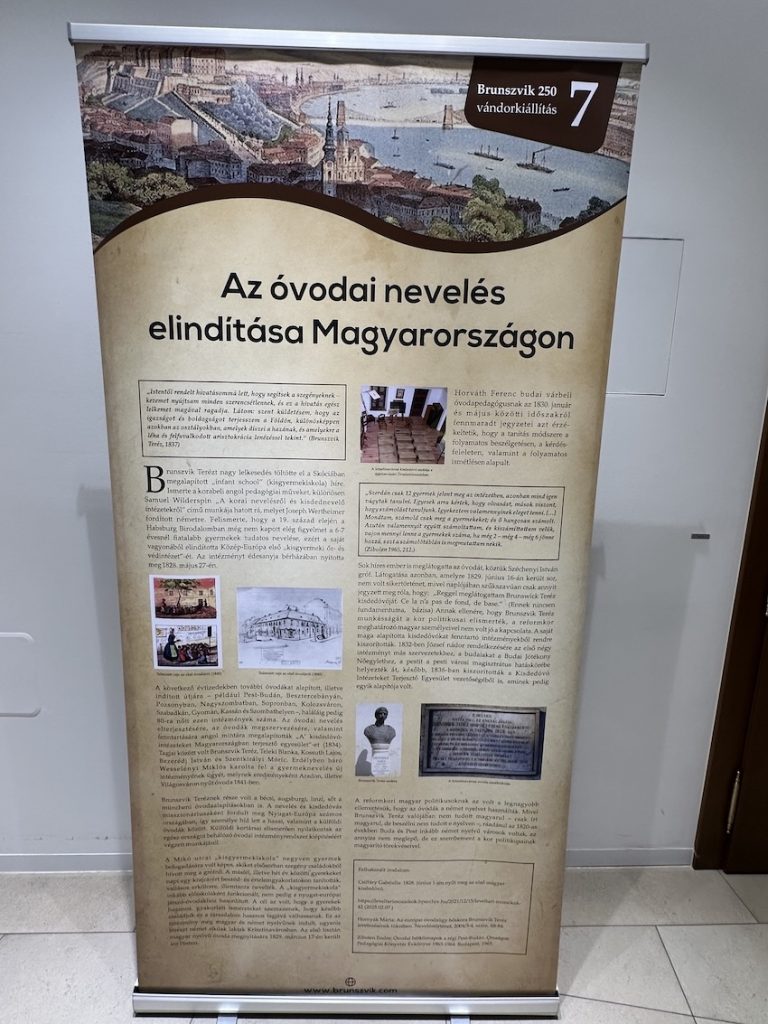
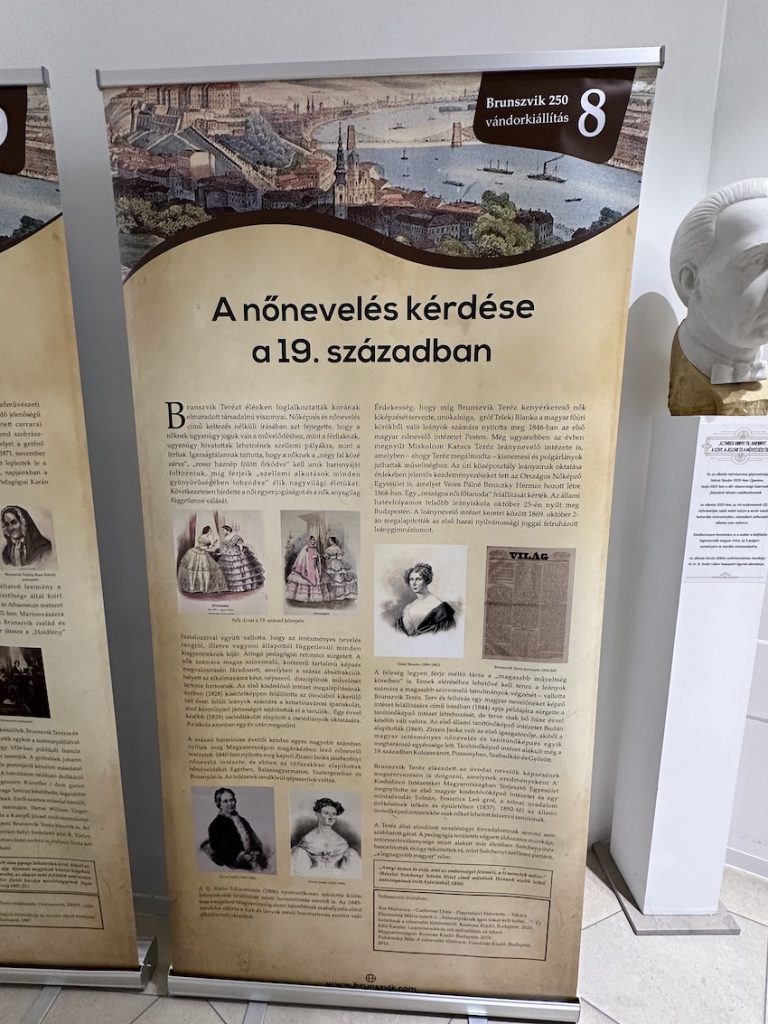
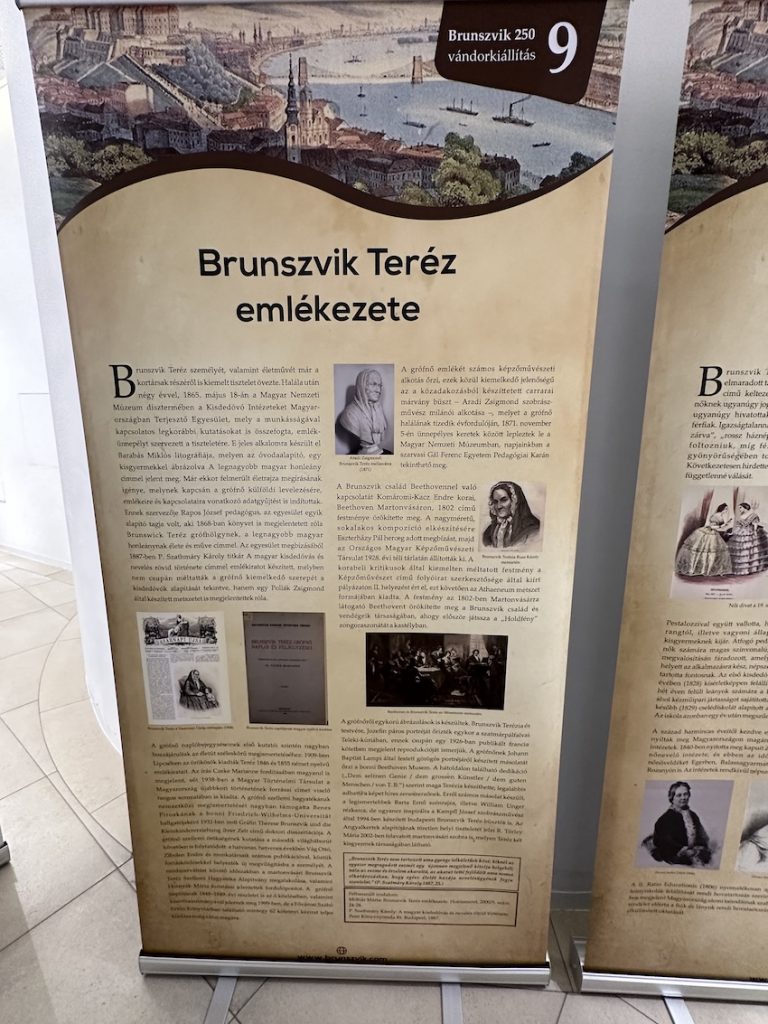
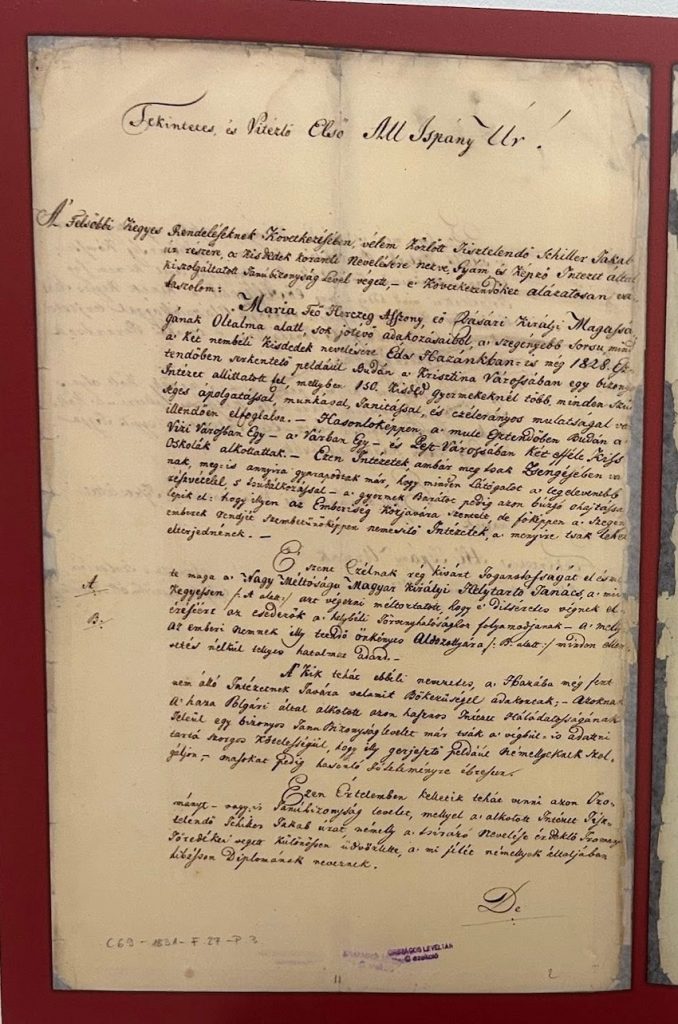
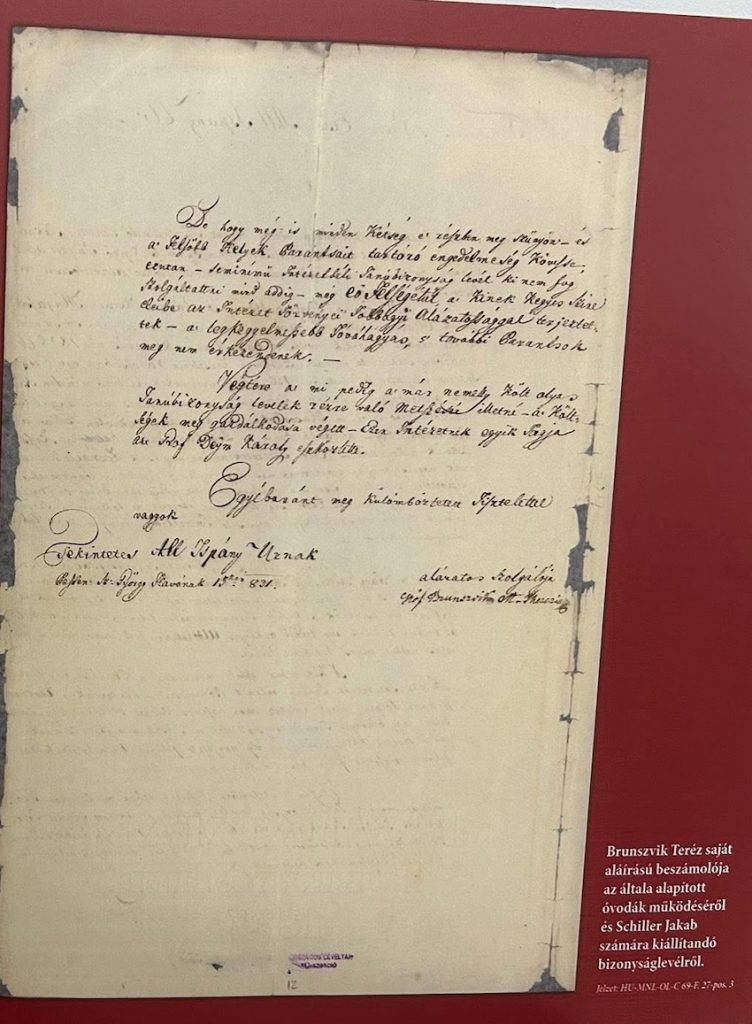
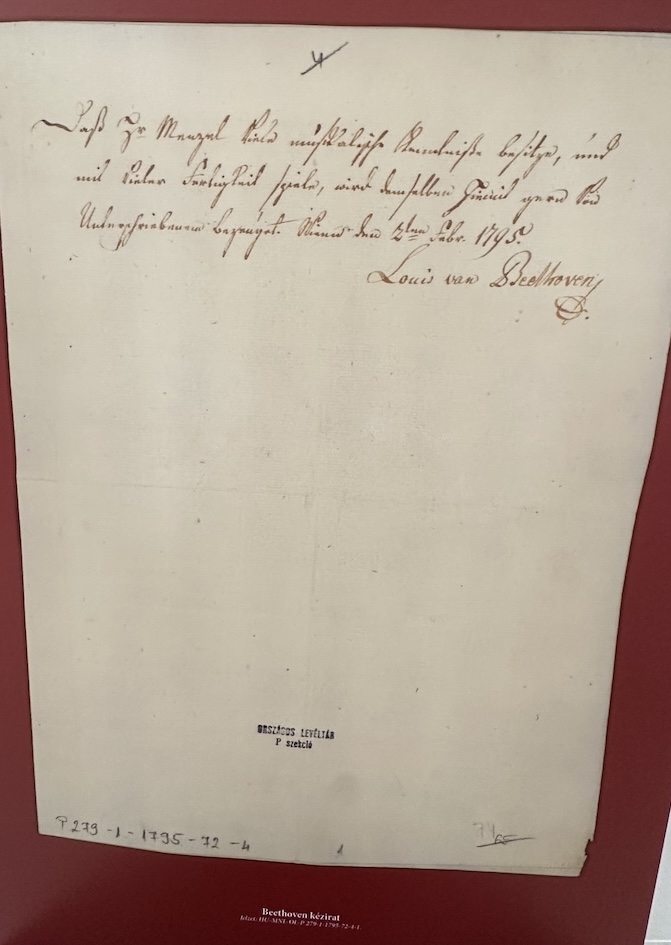
Teréz Brunszvik – Talent, Vision, and Perseverance
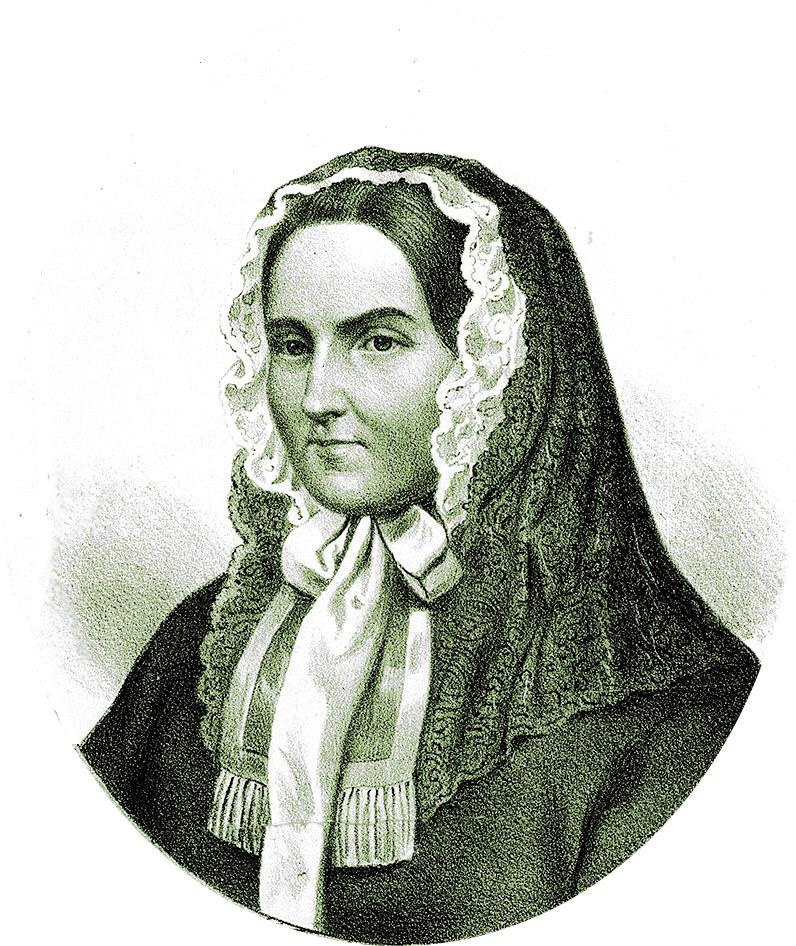
Teréz was born on 27 July 1775 in Pozsony or Pressburg (today Bratislava, the capital of Slovakia), which was the coronation city of the Hungarian kings from 1536 to 1830, and the capital of the historic Kingdom of Hungary until 1848. She came from the Hungarian noble Brunszvik family. Their estate in Martonvásár became the cradle of her pioneering work and remained the place to which she was deeply attached throughout her life.
Her father, Count Antal Brunszvik de Korompa, was a landowner and writer, while her mother, Baroness Anna Seeberg, a former lady-in-waiting at the Viennese Imperial Court, devoted herself to raising their four children, providing them with a cultured, well-rounded education. Teréz’s godmother was Empress Maria Theresa, after whom she was named.
She inherited her father’s reformist ideas and passed them on to her niece, Blanka Teleki (1806–1862) and to Klára Leövey (1821–1897), both of whom carried the torch of women’s education and social reform into the late 19th century.
Teréz was an exceptionally gifted girl: fluent in six languages (though little in Hungarian), a talented pianist, painter, poet, and socially aware reformer. Music played a central role in her life: she began piano lessons at the age of three and performed with orchestral accompaniment by age six.
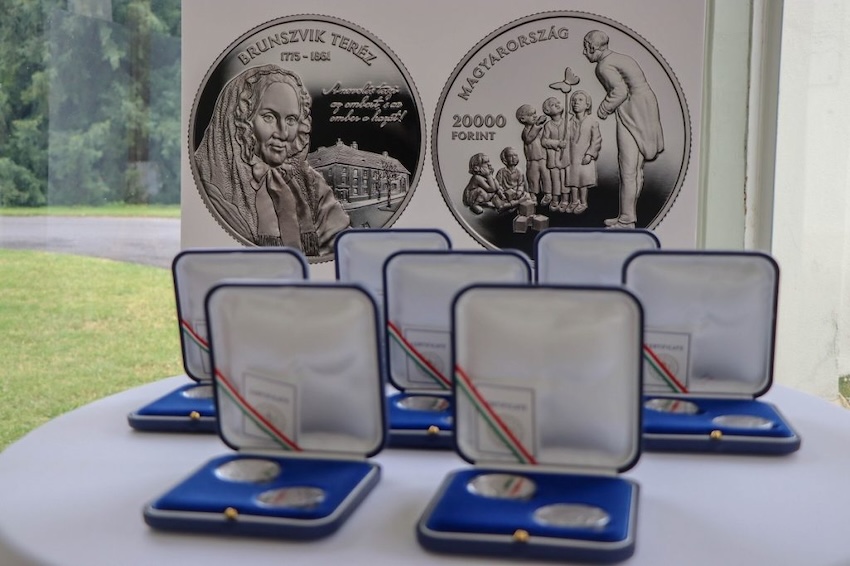
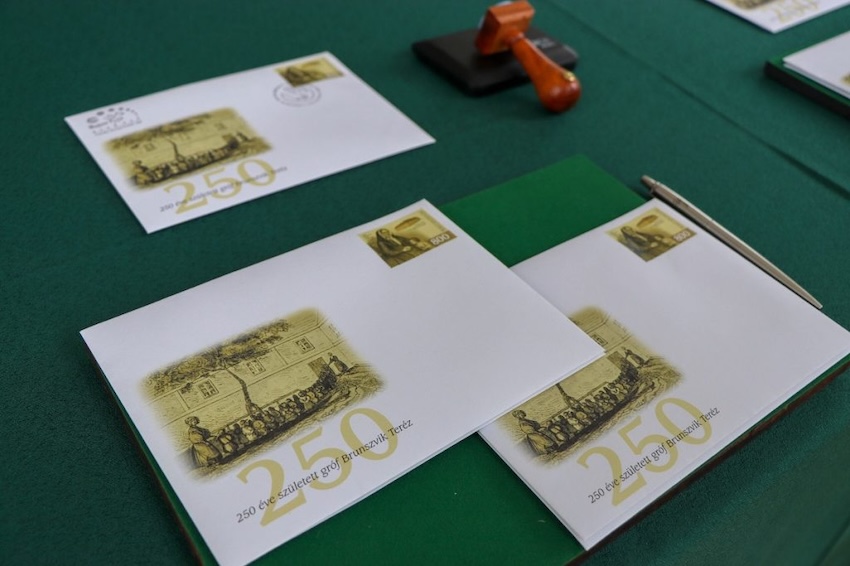
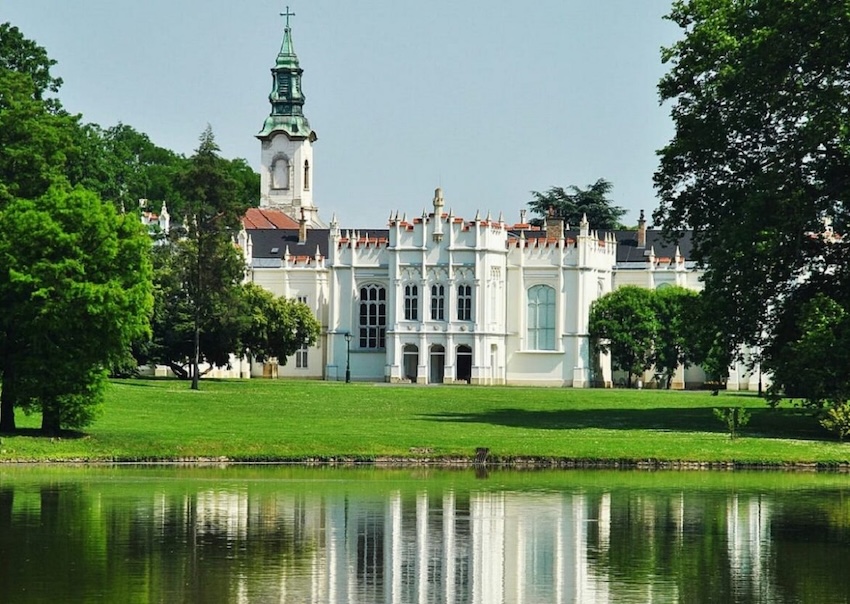
Beethoven and the Brunszvik Sisters
In the summer of 1799, the 24-year-old Teréz Brunszvik and her younger sister Josephine, accompanied by their mother, had the remarkable opportunity to meet Ludwig van Beethoven (1770–1827) in Vienna. Captivated by Teréz’s piano playing, Beethoven gave her daily lessons for several weeks free of charge, forging a lasting bond with the Brunszvik family. In the coming years, he visited the family several times in Martonvásár and dedicated the Sonata Op. 78 to Teréz and the Appassionata Op. 57 to her brother Ferenc, who was like a brother to him, reflecting both Beethoven’s admiration and the depth of their bond. While early speculation suggested that Teréz might have been the “Immortal Beloved” to whom Beethoven addressed his famous letter, recent research points more to her sister Josephine.
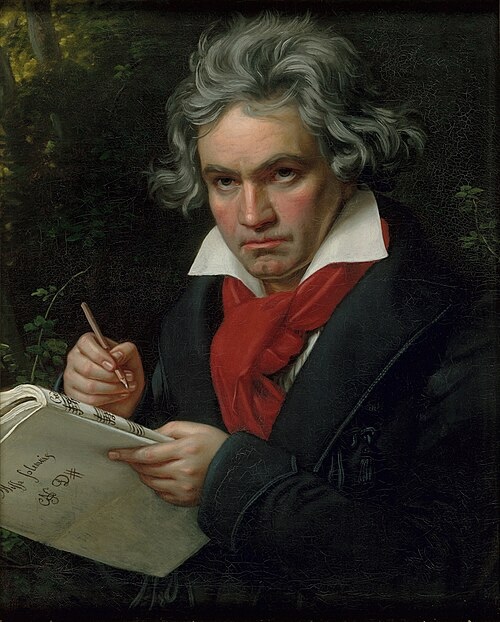
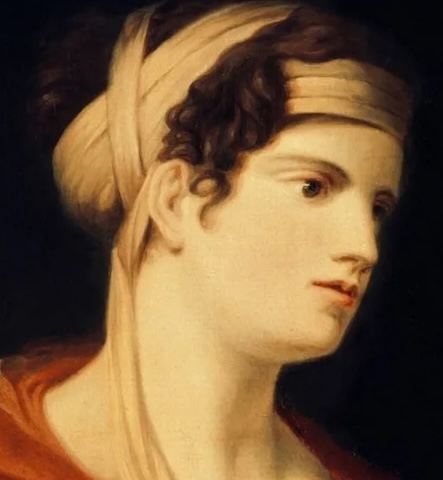
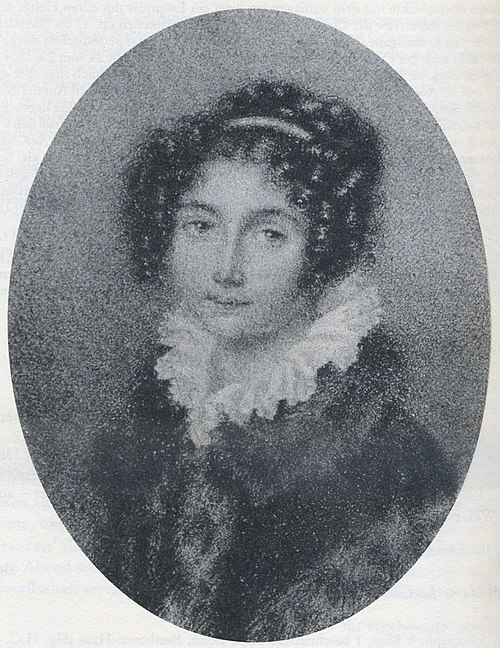
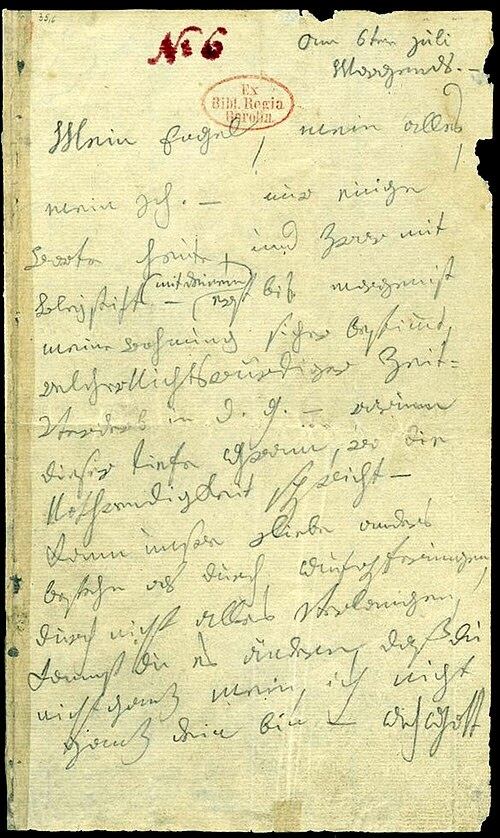
From the Idea to the Angel Garden
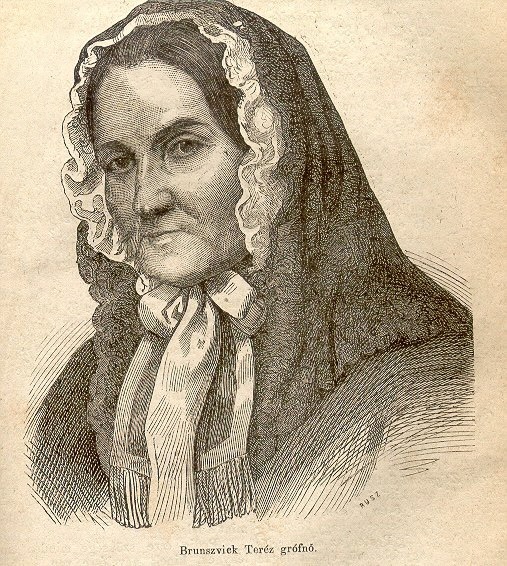
Guided by her conviction that ‘Education makes the person, and the person makes the homeland’, an aphorism often quoted in Hungary, Teréz dedicated her life to advancing learning and enlightenment.
Fulfilling her dream, she founded kindergartens, but encountered resistance and obstacles. Aristocrats were reluctant to support what they considered a whimsical idea, especially when it was being promoted by an unmarried woman.
Determined, Teréz sold her jewellery, silver and carriage to finance the project, which she accomplished at the age of 53.
And finally on 27 May 1828, she opened Hungary’s first kindergarten, Angyalkert (Angel Garden), in her mother’s house in the Buda Castle District at Mikó Street 8. This was the first institution of its kind in the entire Habsburg Monarchy. By 1836, there were already 14 kindergartens across Hungary. According to some records, she also set up the very first Christmas tree in Hungary in 1824.
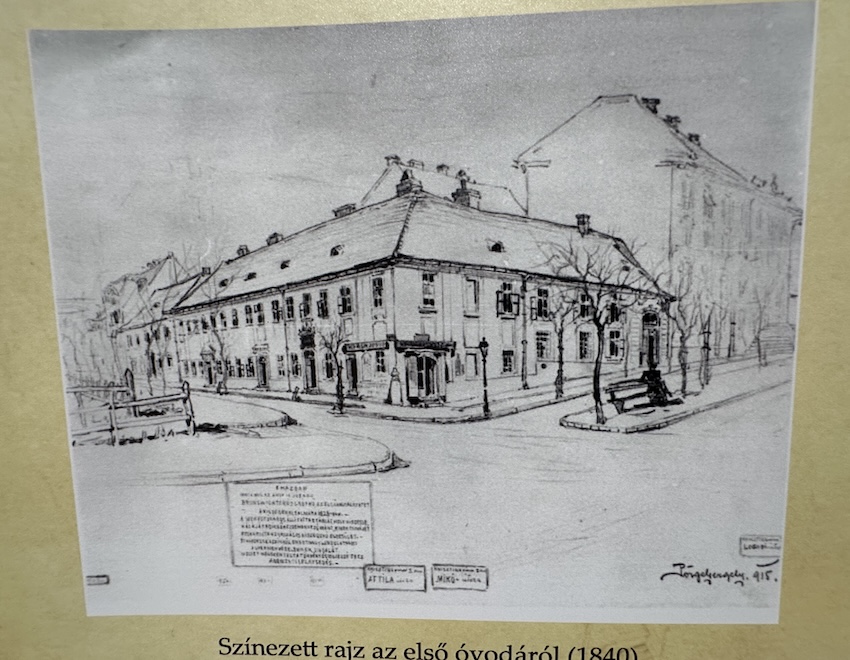
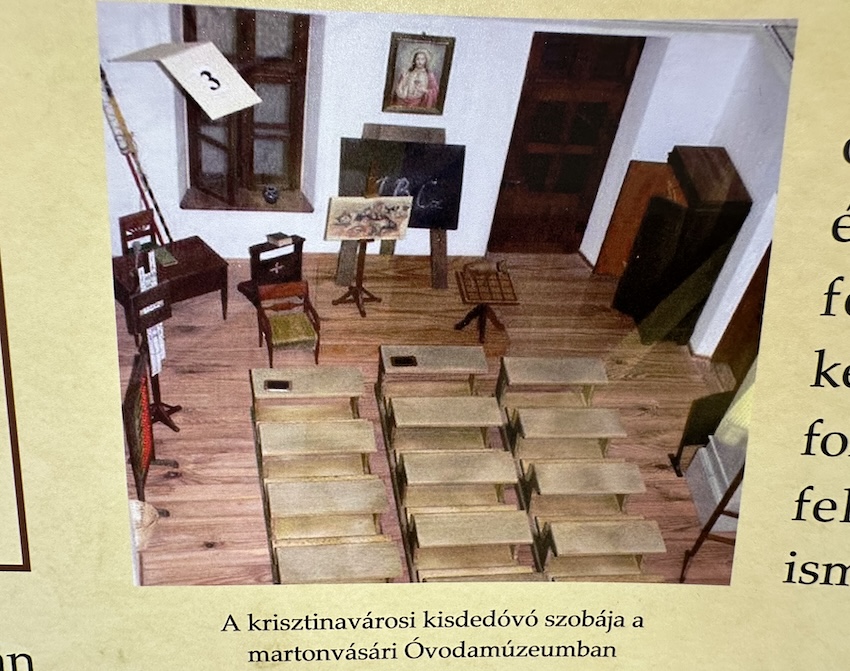
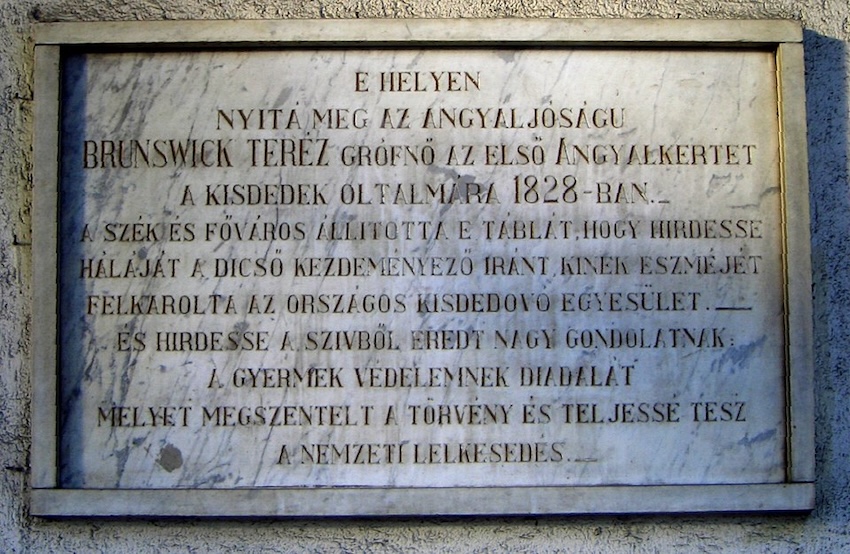
Later, in October 1828, she established vocational schools for girls and schools for maids, ensuring that children and young women could receive a structured, modern education.
Although Teréz had no children of her own, she was surrounded by children throughout her life. “Working with children is undoubtedly the most rewarding task that can be ours on this earth – it is also what advances our own perfection,” she wrote, underlining the mutual enrichment between teachers and pupils. At her death in 1861, there were 80 kindergartens operating in Hungary.
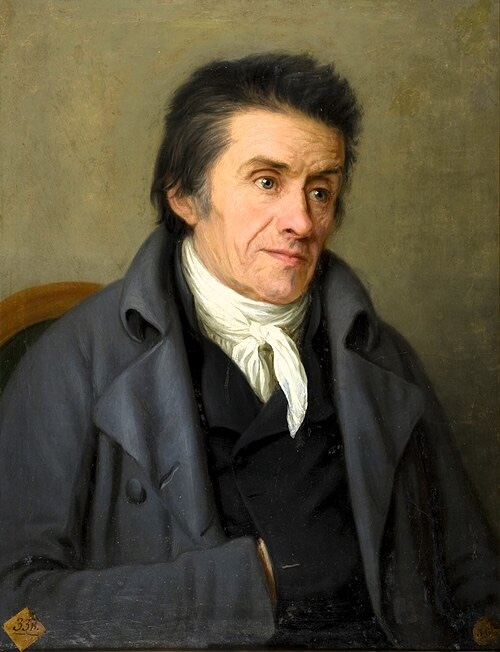
Teréz Brunszvik and her sister Josephine were deeply influenced by the progressive educational ideas of the Swiss pedagogue and reformer Johann Heinrich Pestalozzi. The sisters therefore travelled to Yverdon, Switzerland, where they studied Pestalozzi’s innovative approach, which emphasized nurturing the whole child – head, heart, and hands – through practical and moral education rather than rote learning.
Inspired by Pestalozzi, Teréz’s work reflected her teacher’s philosophy of individualized care, compassion, and learning through activity, leaving a lasting legacy that shaped Hungarian education for generations.
Her dedication inspired her niece, Blanka Teleki, who opened a Hungarian institute for girls in 1846, countering the then-prevailing trend of relying on German and French governesses. “To inspire others to do good through example and action, this was the mission of my life” – said Teréz Brunszvik.
Martonvásár – Heritage and Remembrance
Today, the Brunszvik Castle in Martonvásár, just 35 kilometres from Budapest, celebrates the close ties between Ludwig van Beethoven and the Brunszvik family with a spectacular permanent exhibition dedicated to the composer’s legacy.
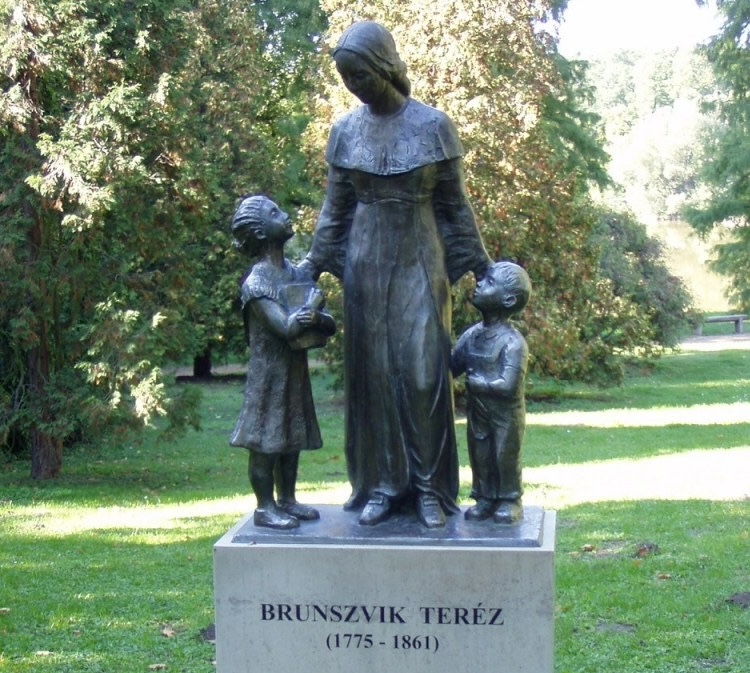
A temporary exhibition was also opened, dedicated to Countess Teréz Brunszvik, on view until July 2026.
In the castle’s vast landscaped park stands a touching statue of her with young children, created in 2002 by the Hungarian sculptor R. Mária Törley. Visitors can also explore the unique Kindergarten Museum on the estate.
The castle’s romantic island on the lake, where Beethoven is believed to have composed the piano sonata “Appassionata”, adds further charm to the location, while summer concerts held in his memory make the site a cultural treasure.
In the city centre, a double statue by Slovak sculptor János Nagy, unveiled in 2015, stands proudly on the main square, honouring both Beethoven and his enigmatic Immortal Beloved, who may have been Countess Teréz or Countess Josephine Brunszvik, or perhaps another woman … it remains a mystery. The famous romantic love letter, Beethoven wrote in pencil to the Immortal Beloved in July 1812, was never sent and came to light only after the composer’s death in 1827, when it was found among his personal papers.
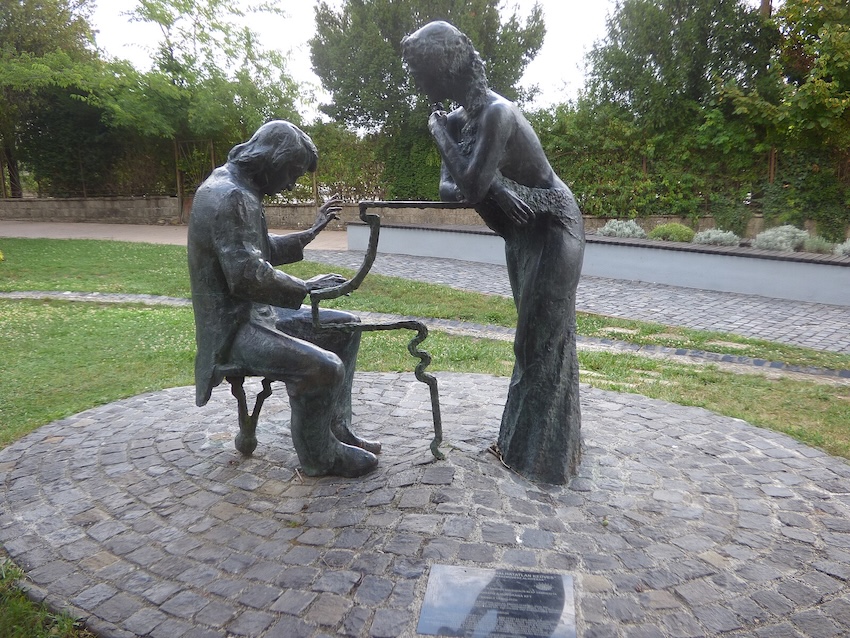
Timeless Lessons for Society
The play Angel Garden reminds modern audiences that children are not small adults, but individuals with their own world, needs, and dignity, and that education shapes society itself. The values of patriotism, empathy, solidarity, and compassion embodied by Teréz Brunszvik’s pioneering work in early childhood education are as vital today as they were in her time.
While Count István Széchenyi is hailed in Budapest as the Greatest Hungarian, Teréz Brunszvik could be considered the Greatest Woman in Hungarian history, whose courage, talent, and vision continue to inspire. And her legacy still speaks to us today: “Children are not our future, but our present. The way we educate and love them today determines our tomorrow.”
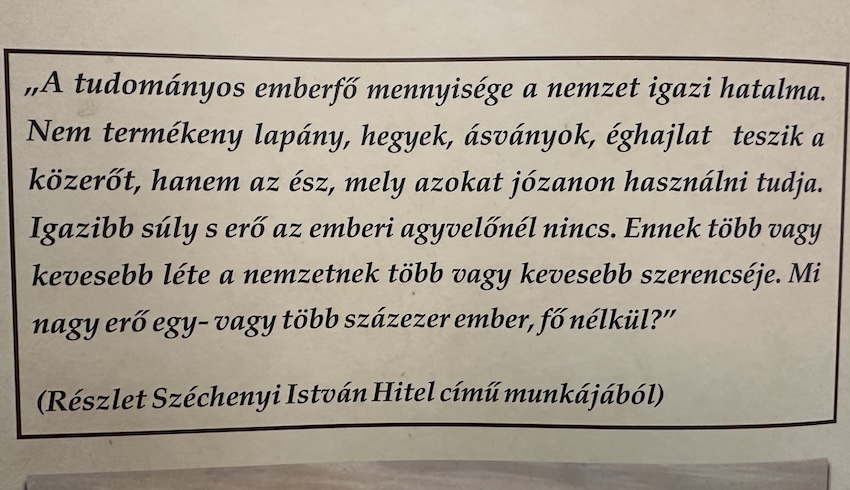
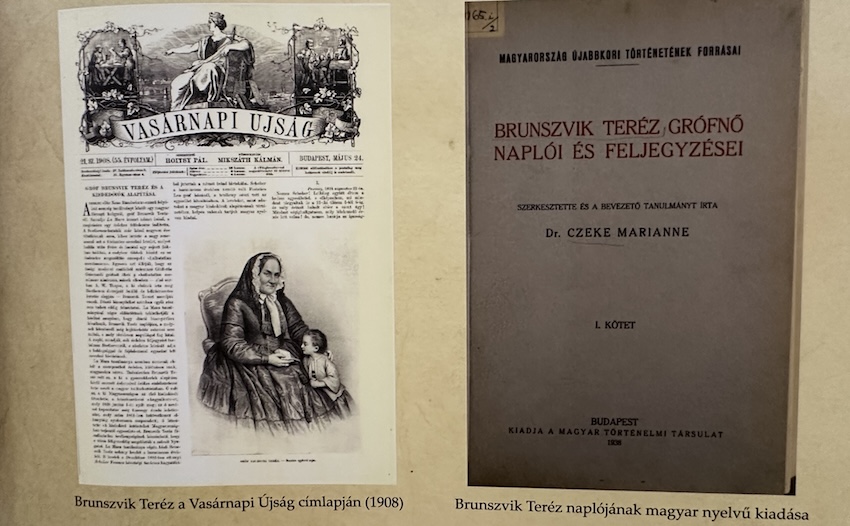
A subsequent performance of Angel Garden is scheduled at the Royal Palace of Gödöllő, on 30 October 2025.
Sources: www.brunszvik.com , Batthyány-Schmidt Margó
Photos from www.brunszwik.com, Batthyány-Schmidt Margó, and Diplomatic Press Agency





